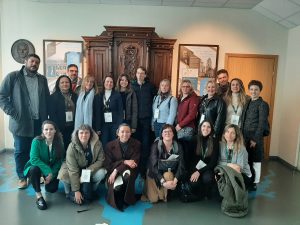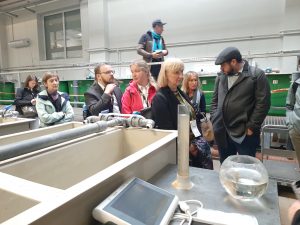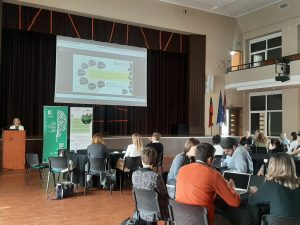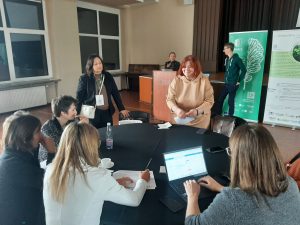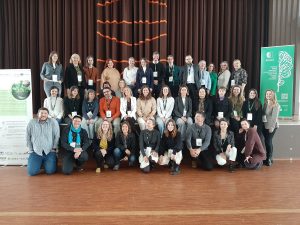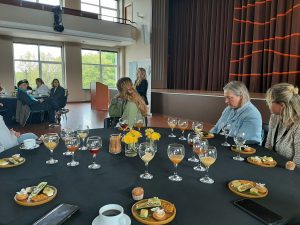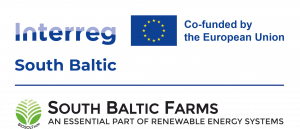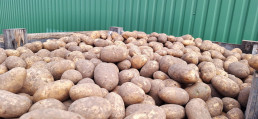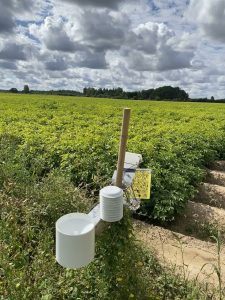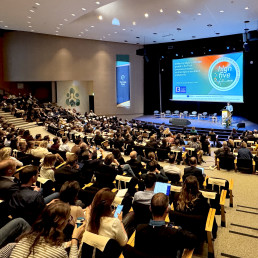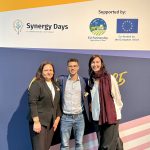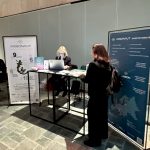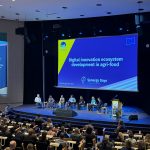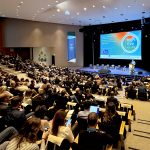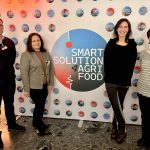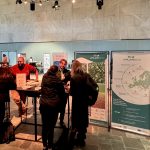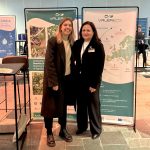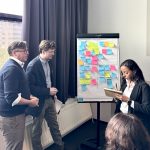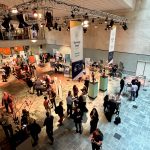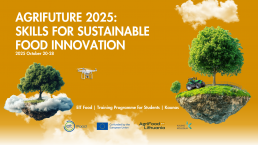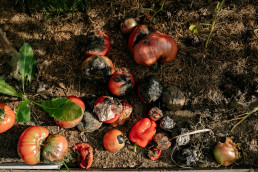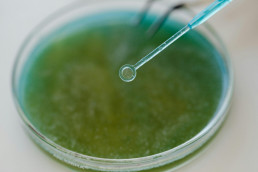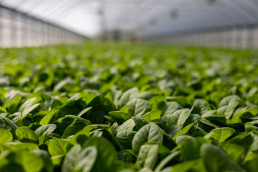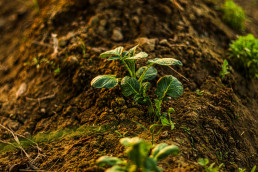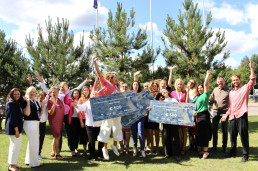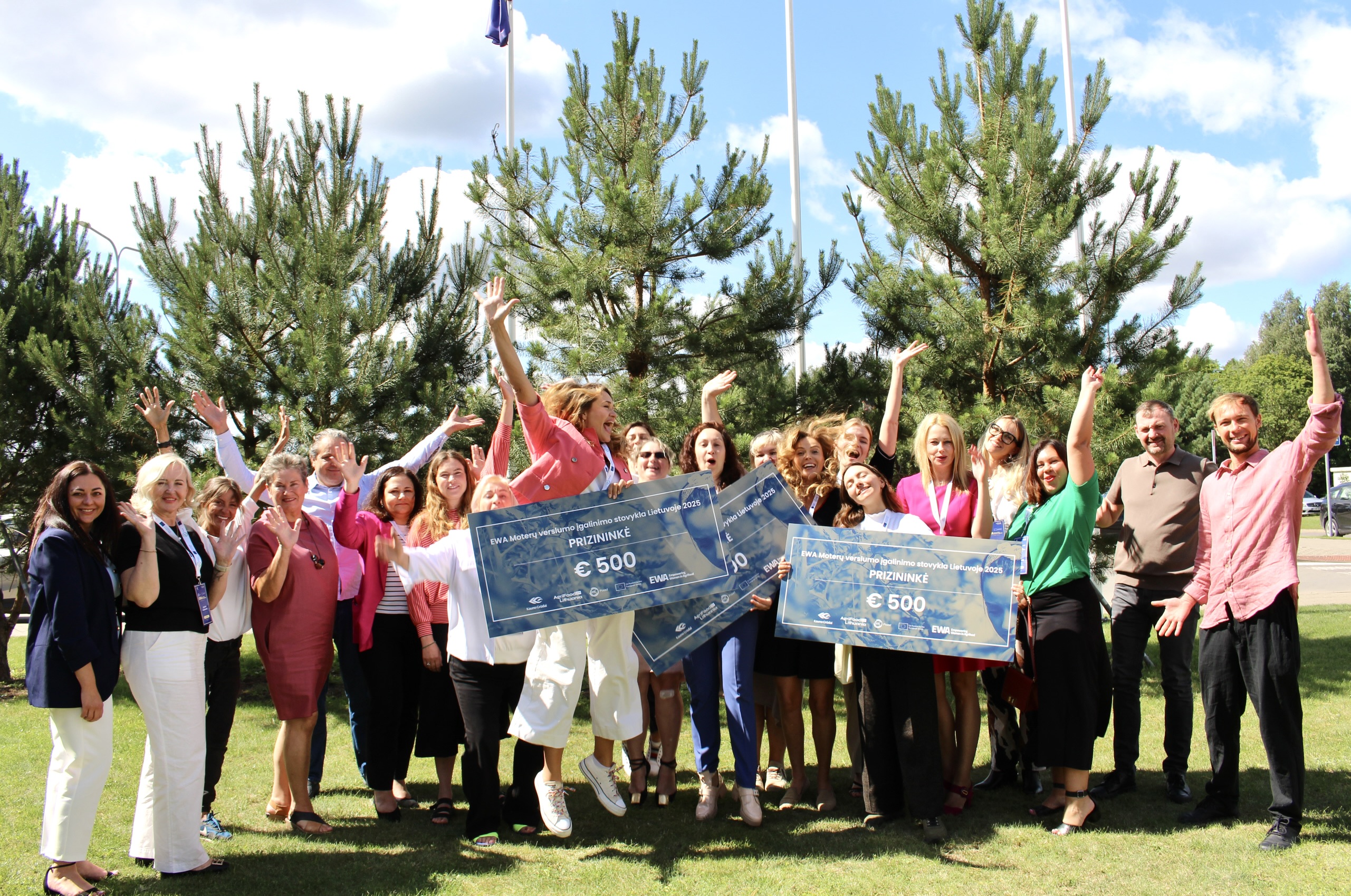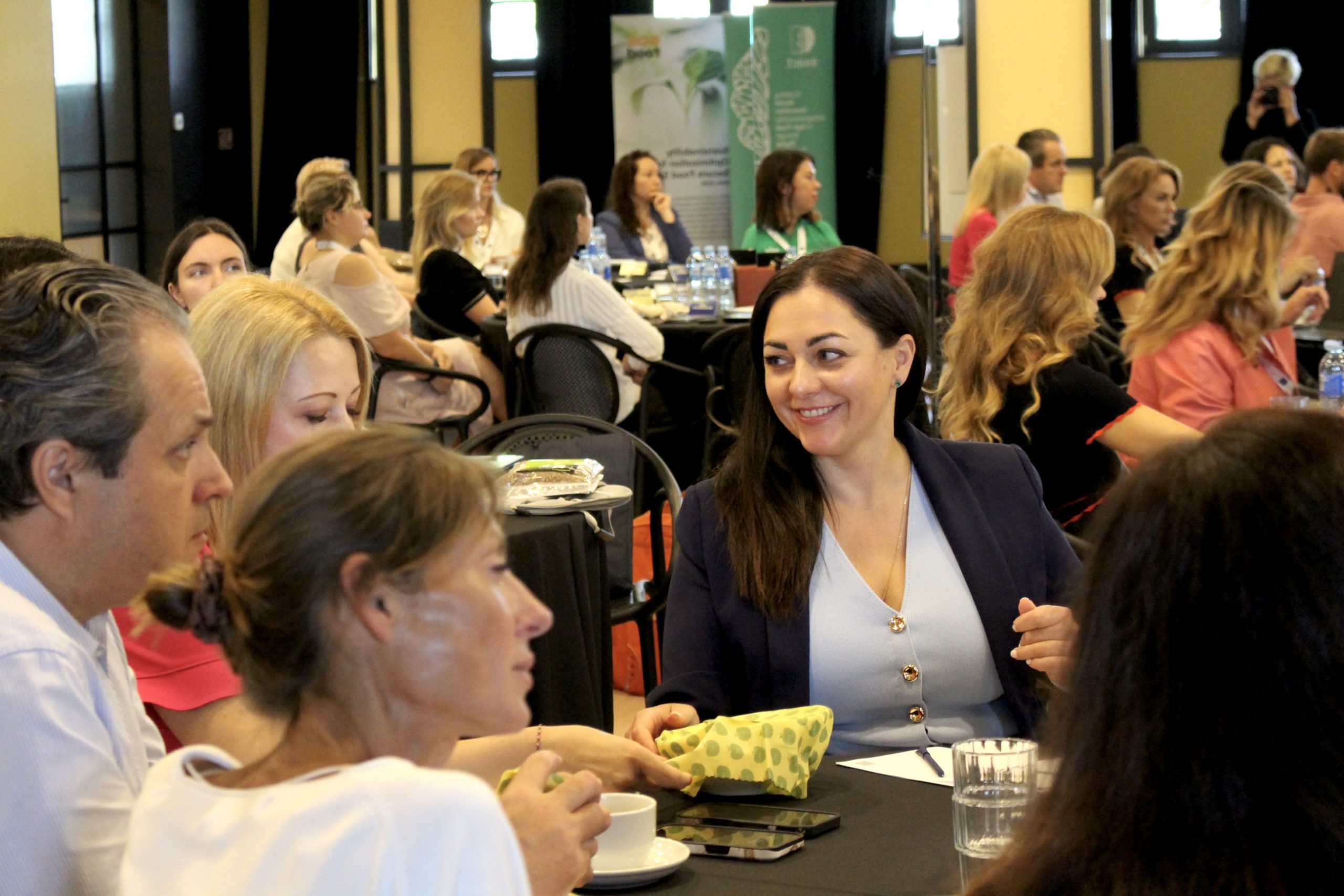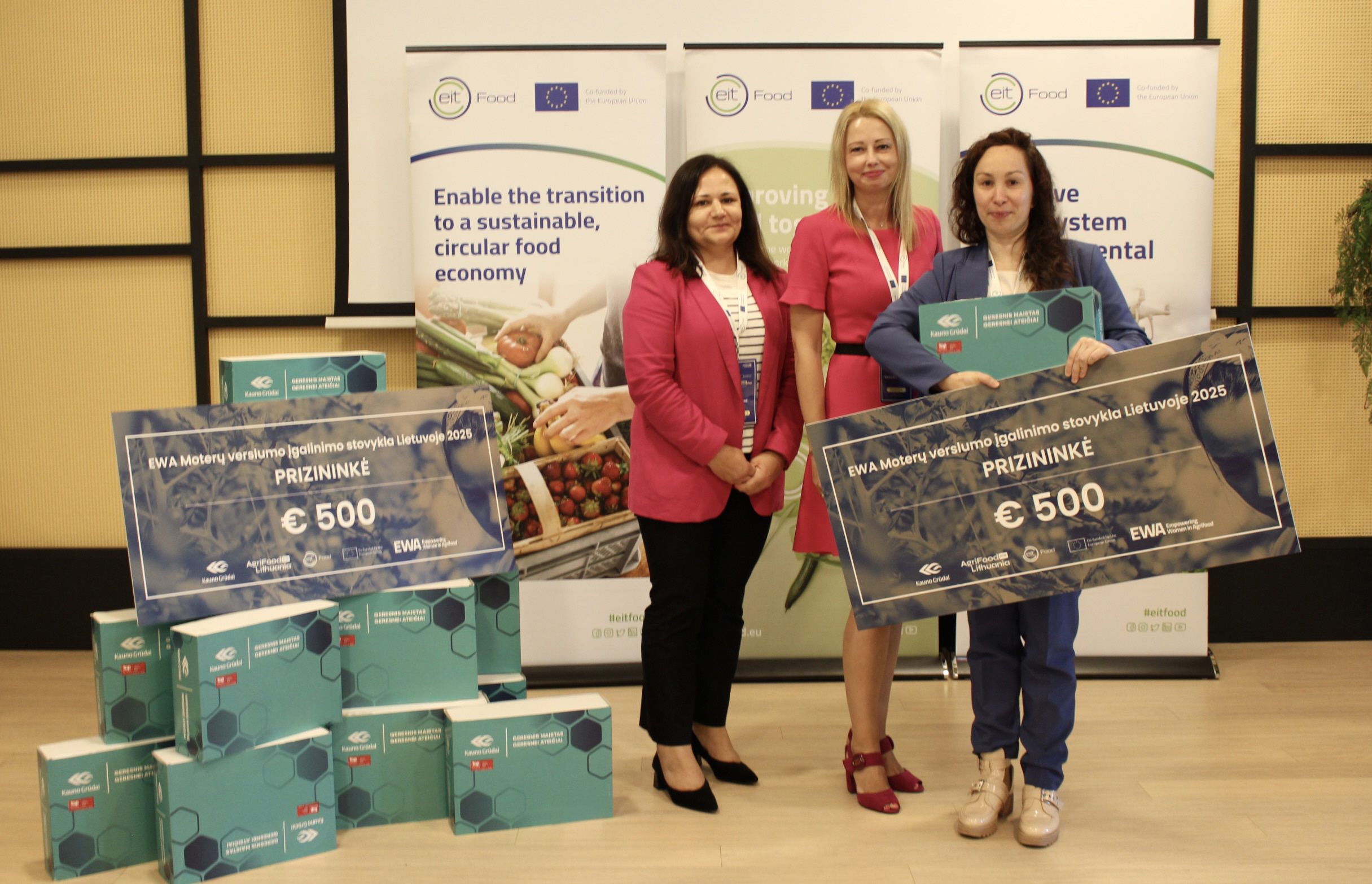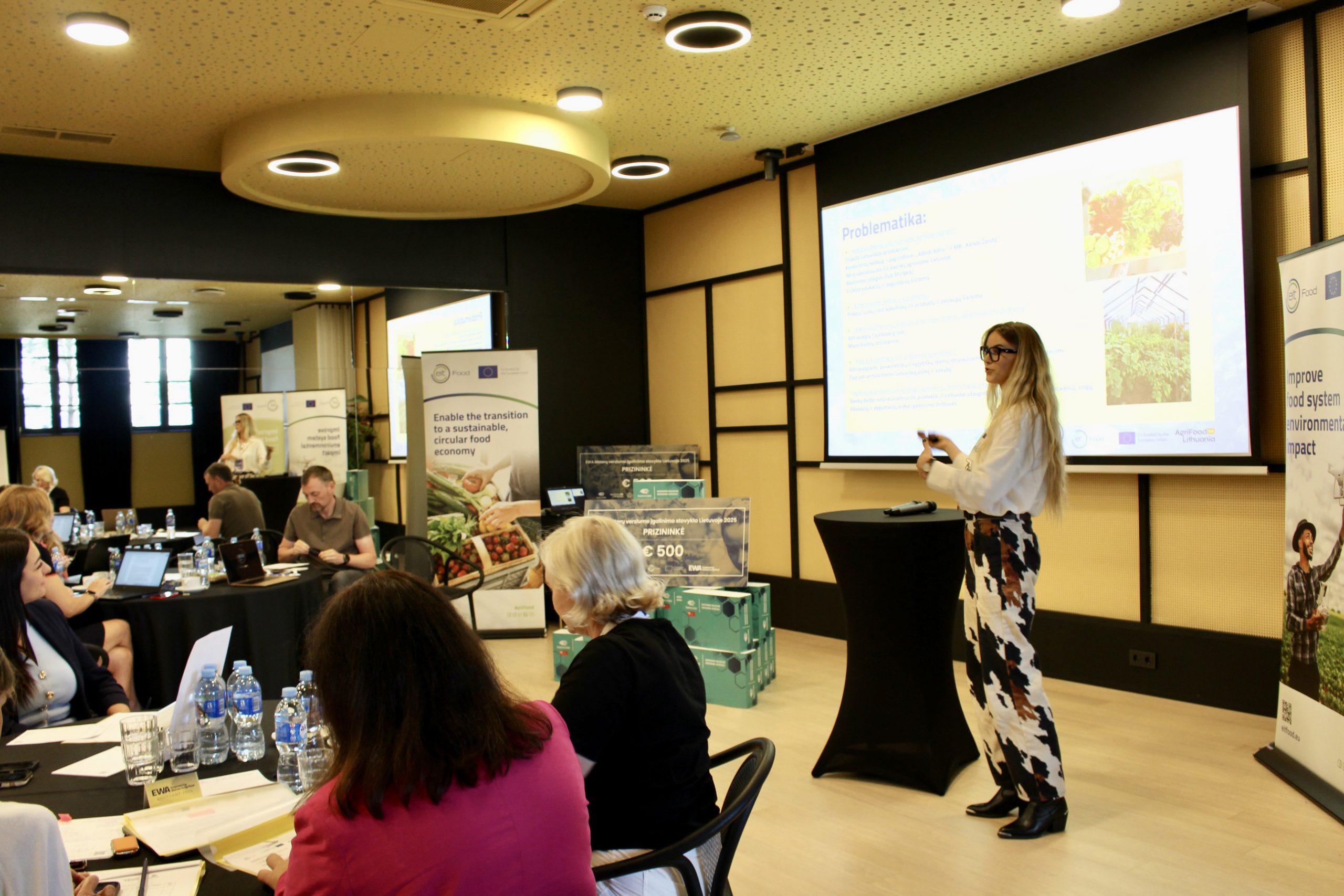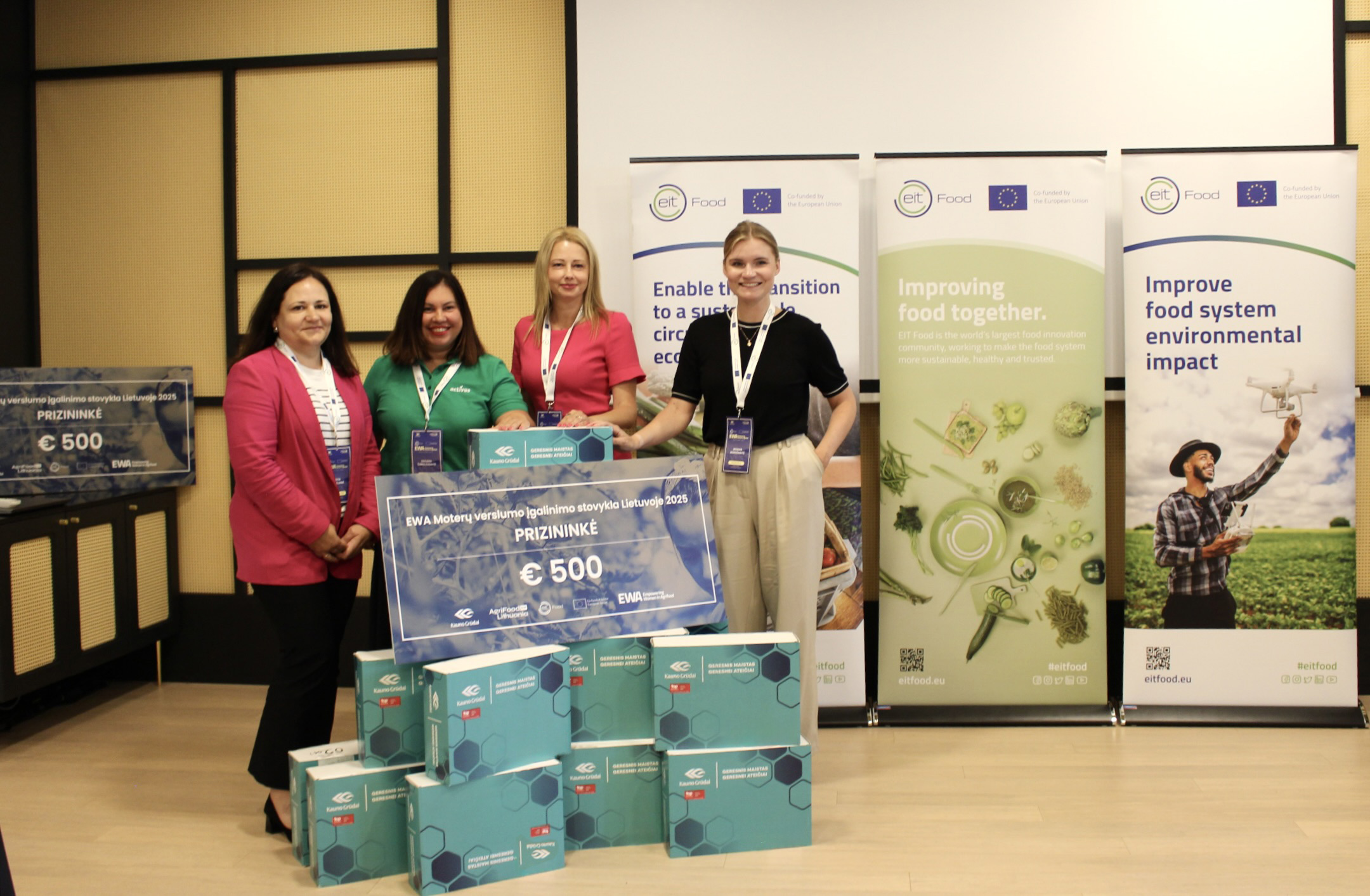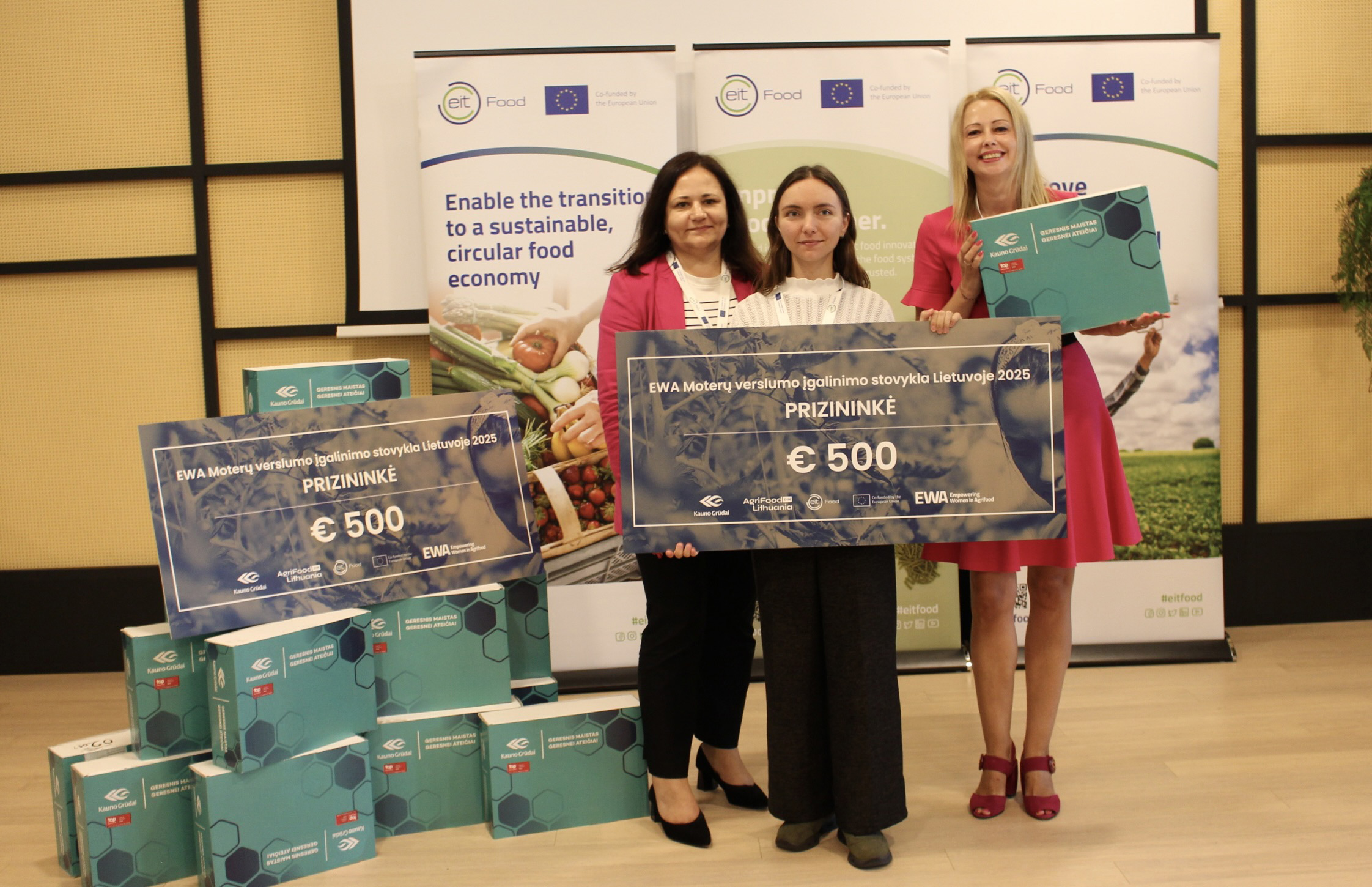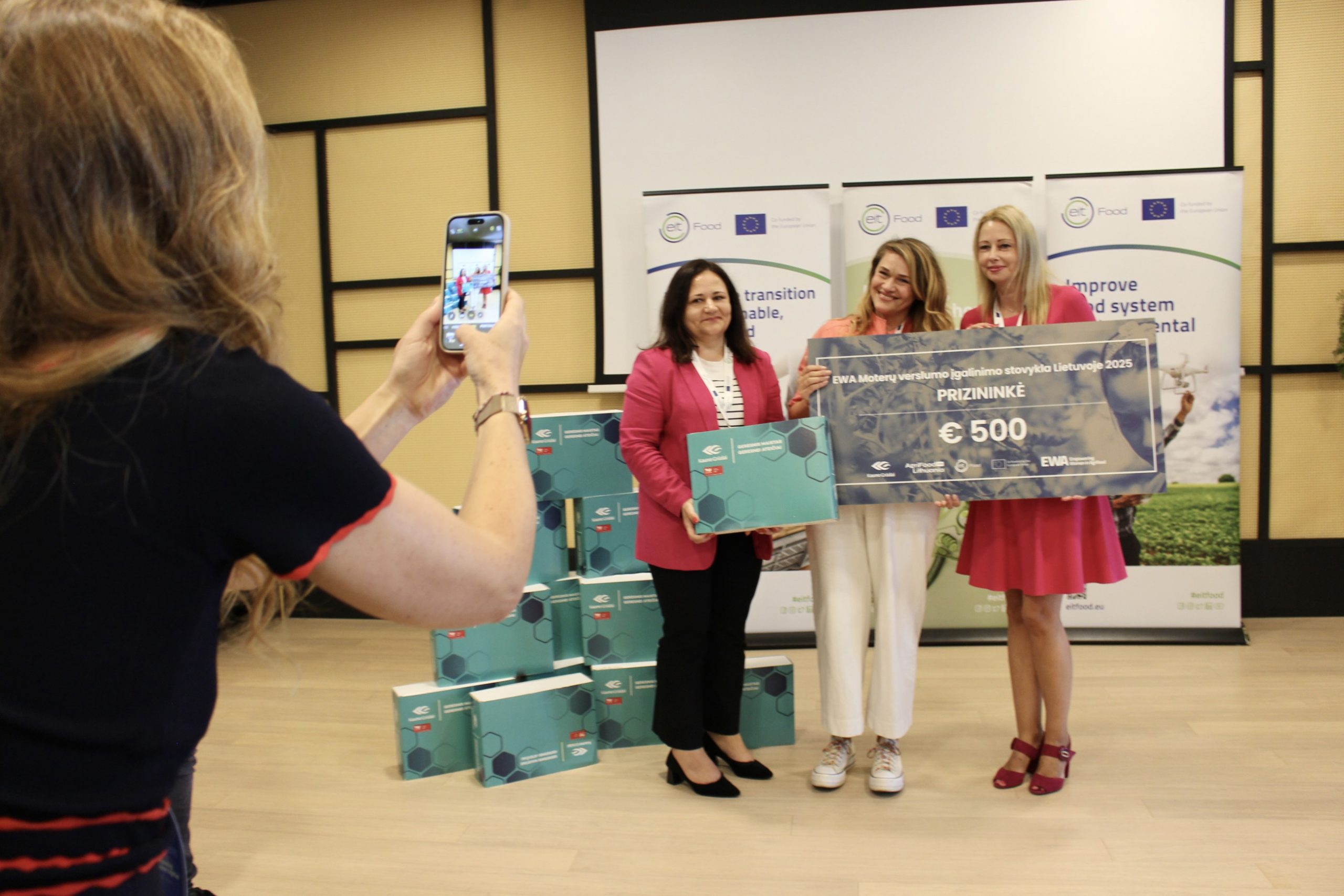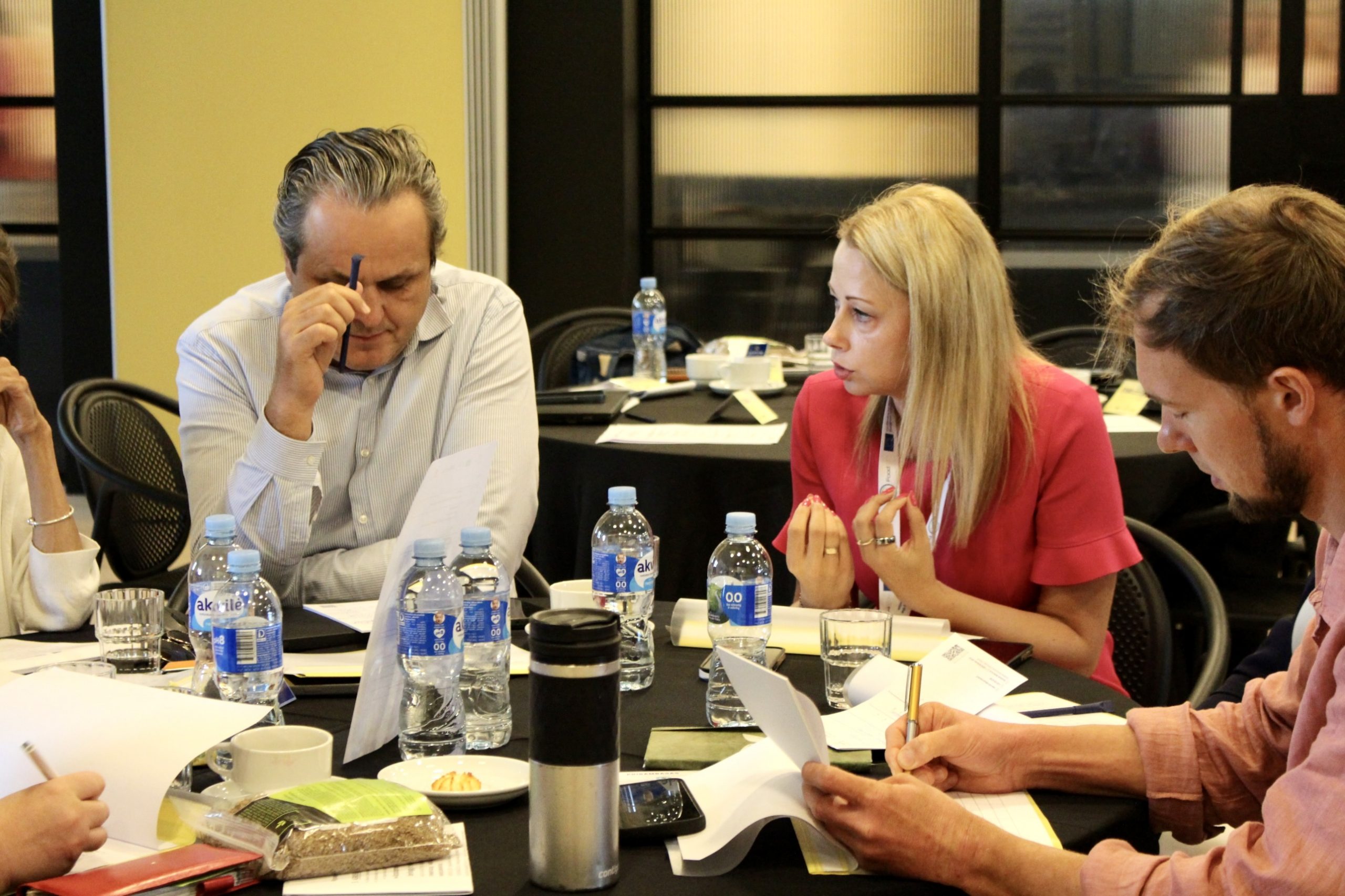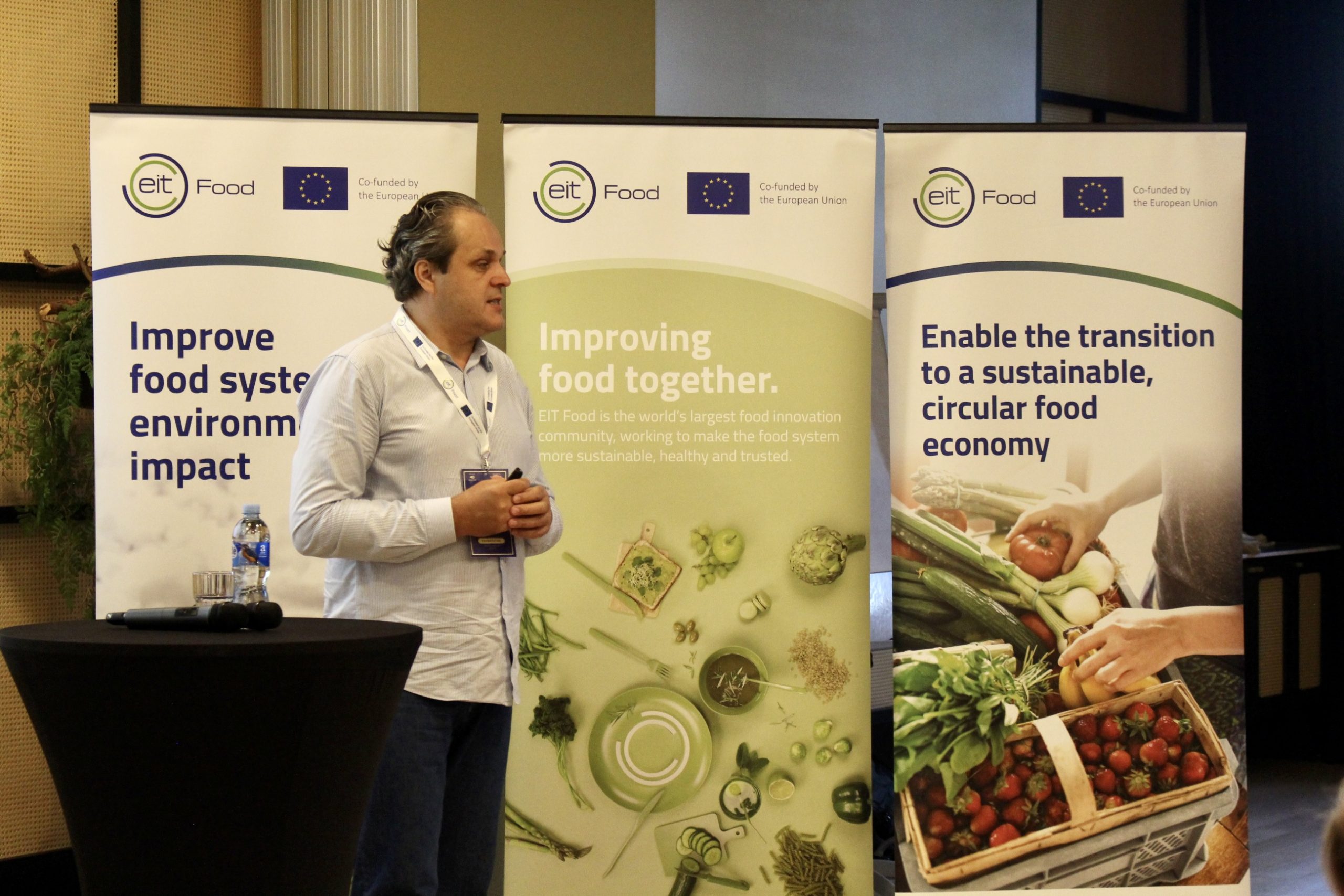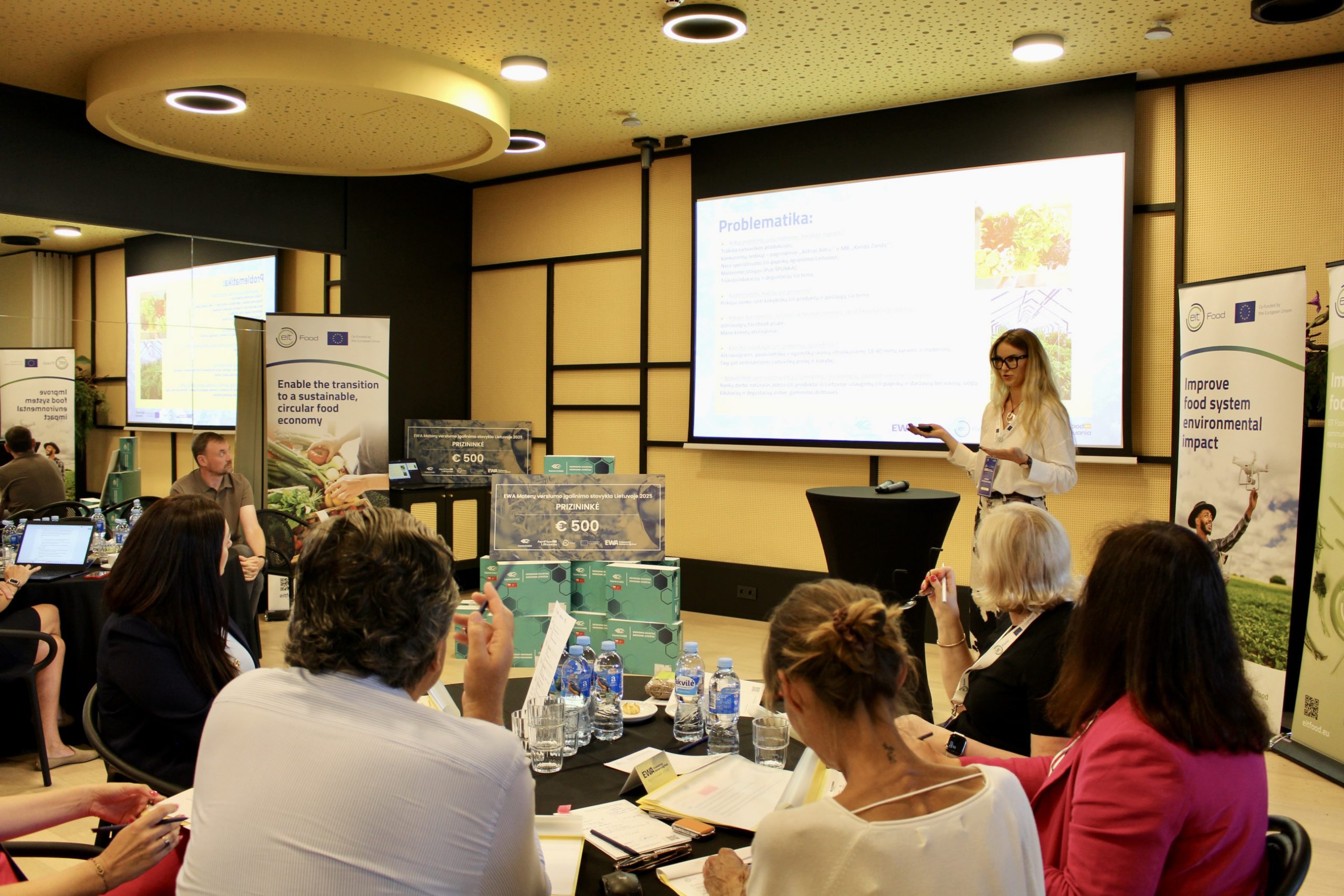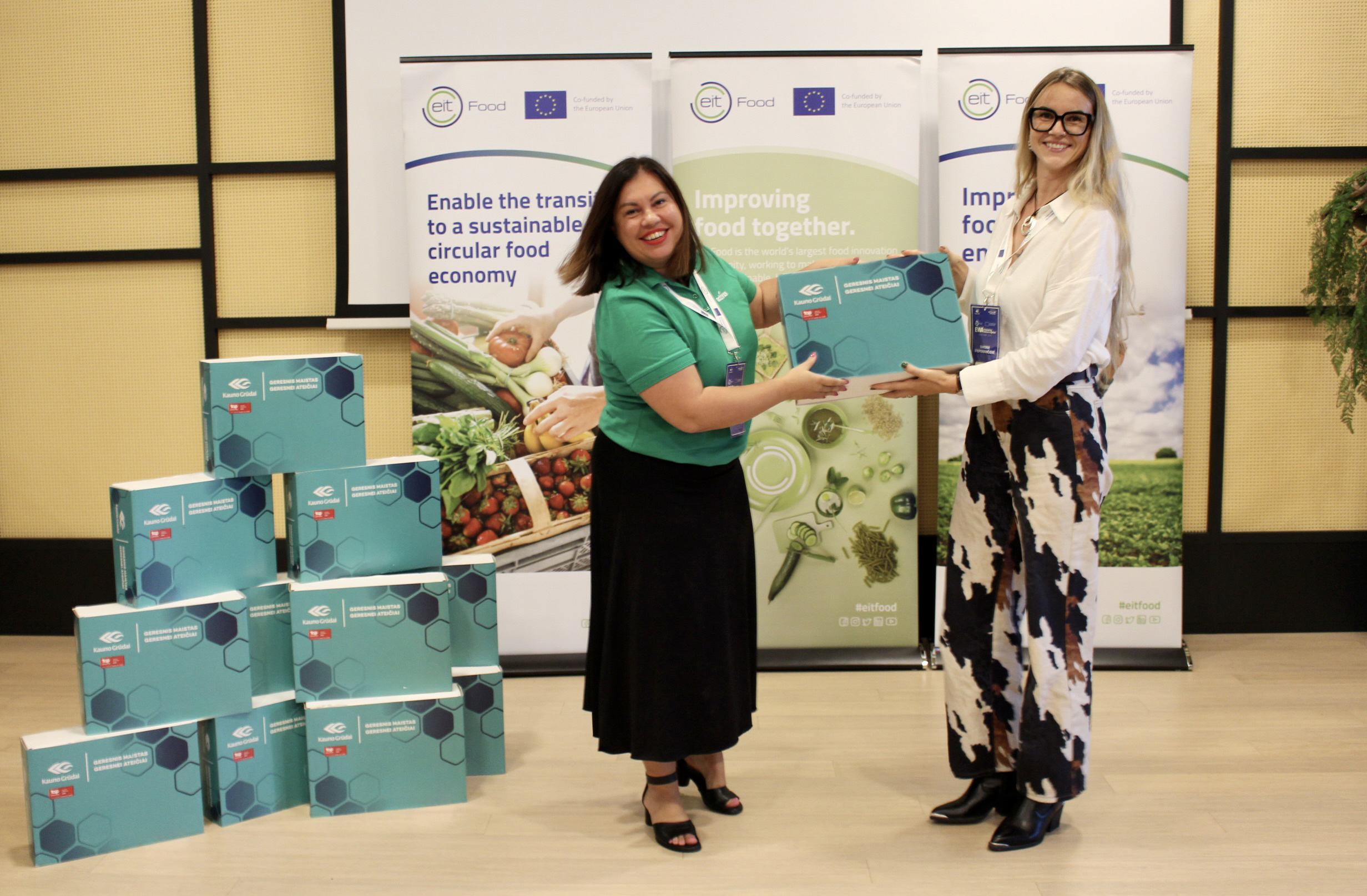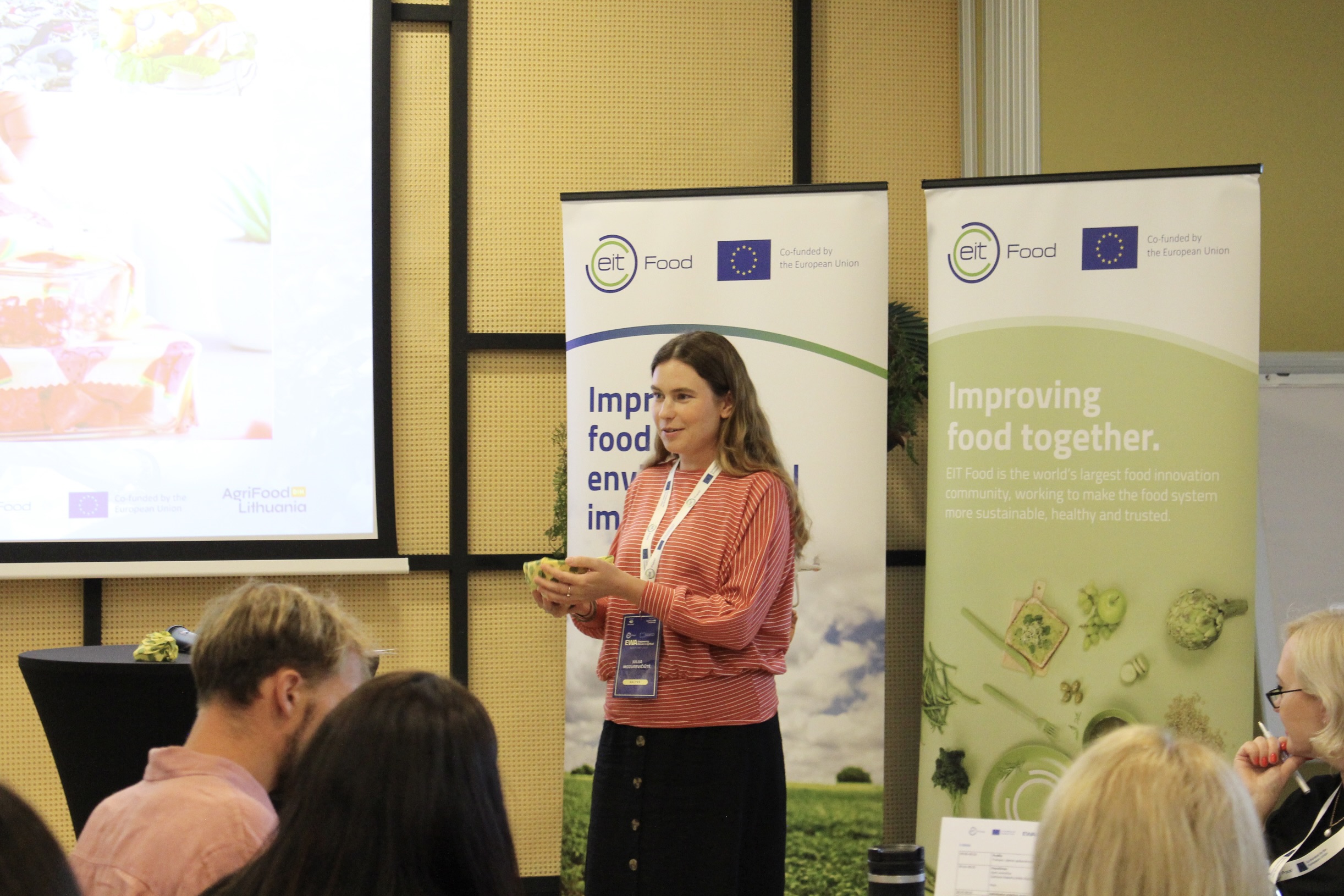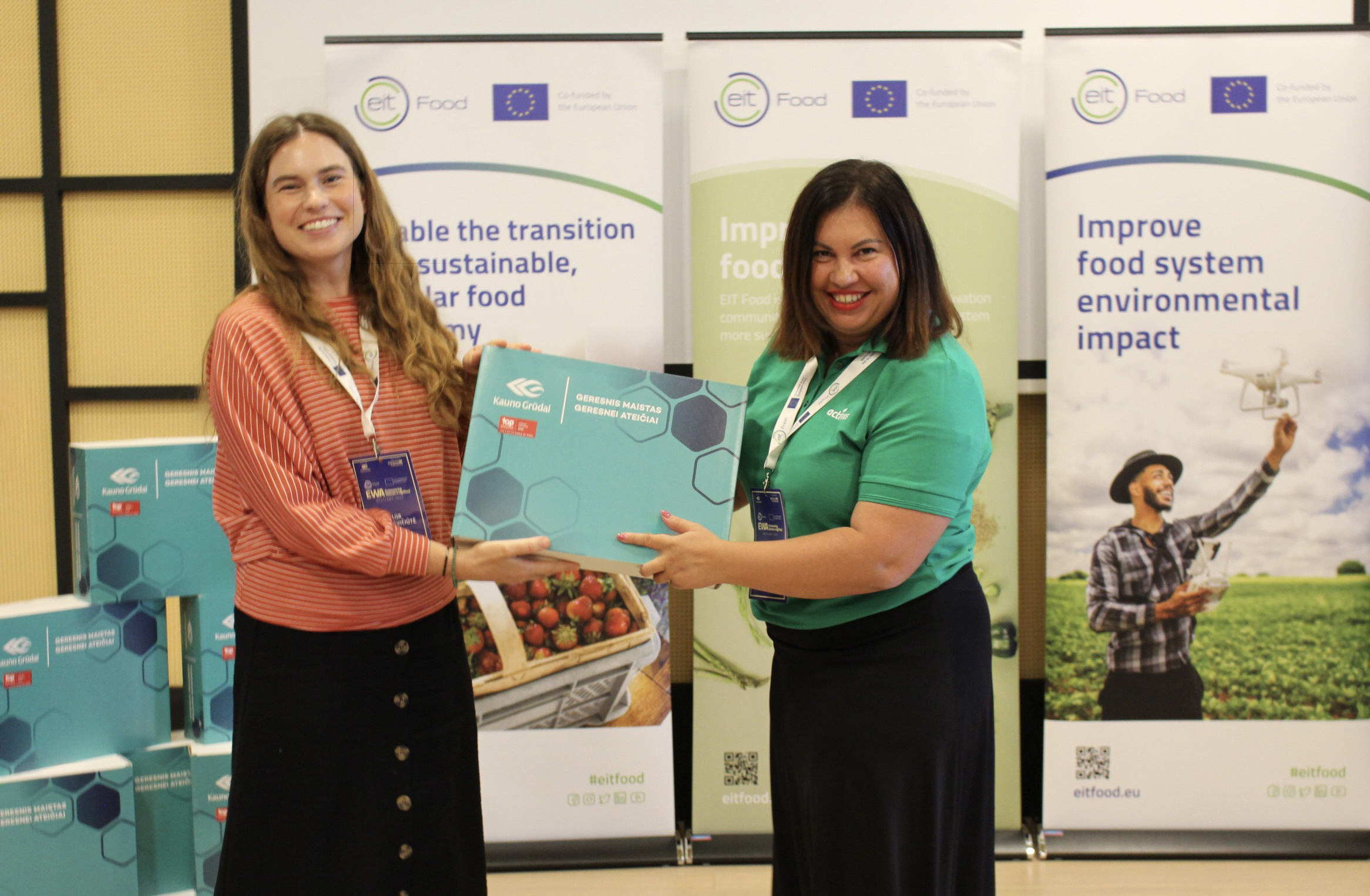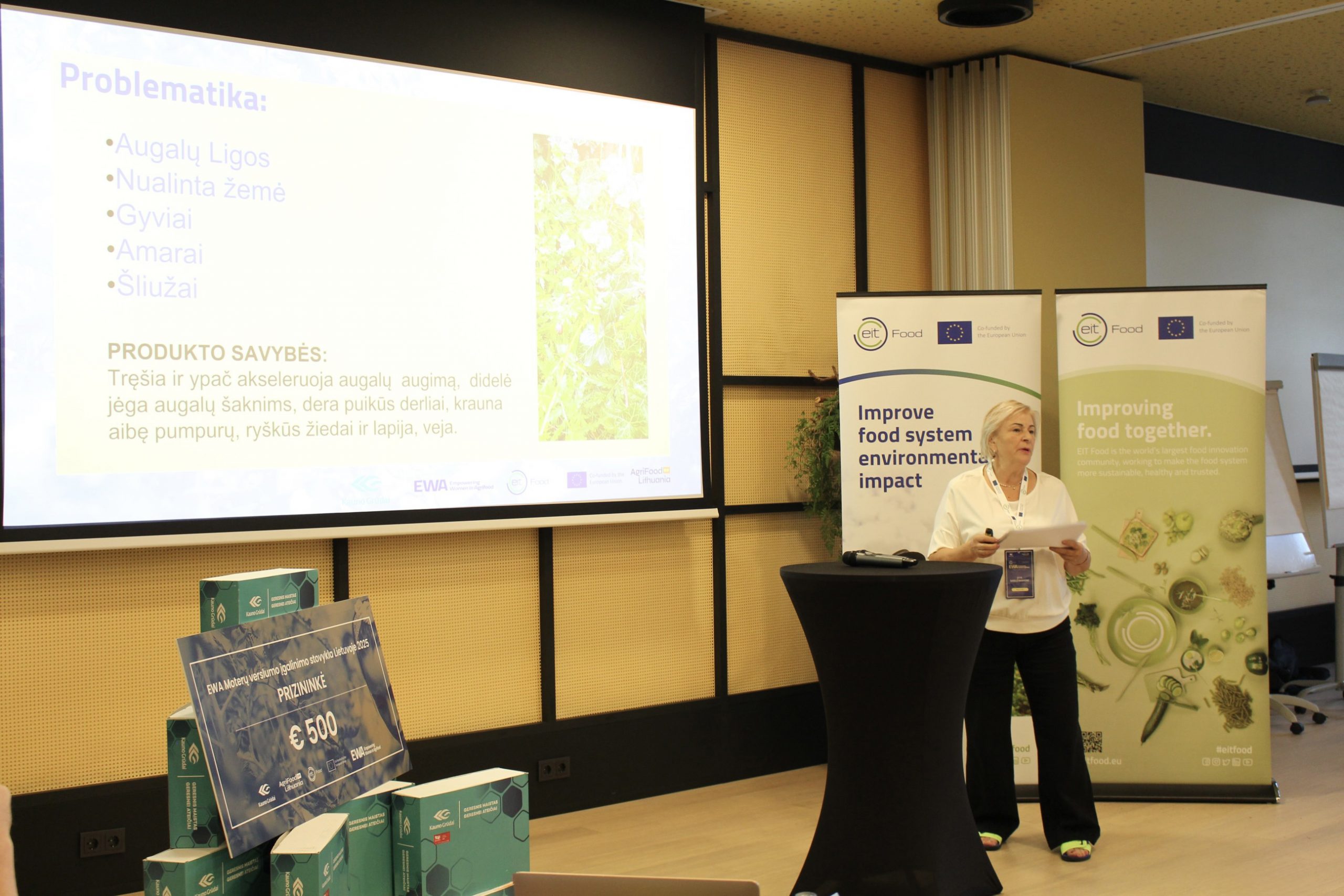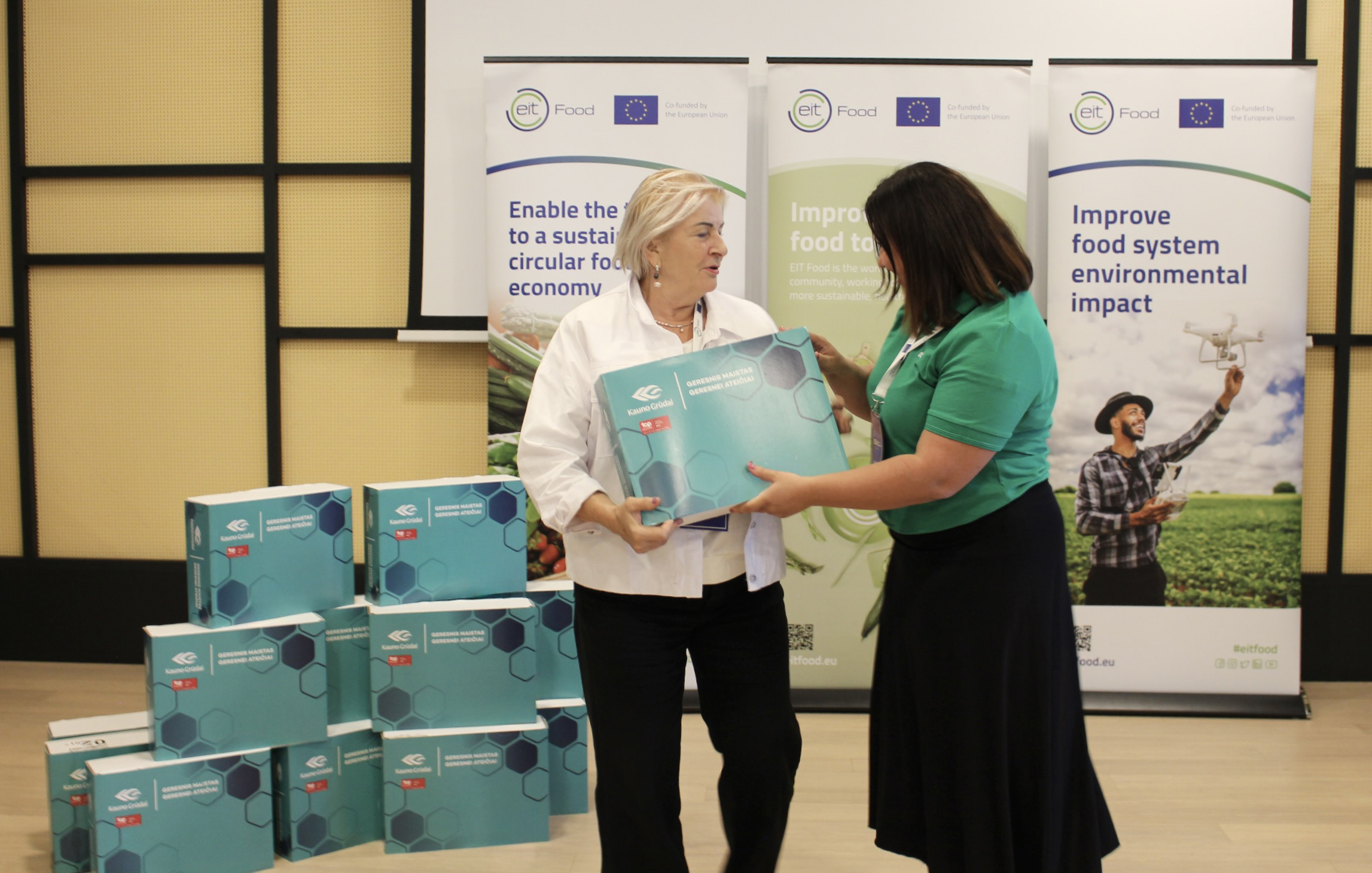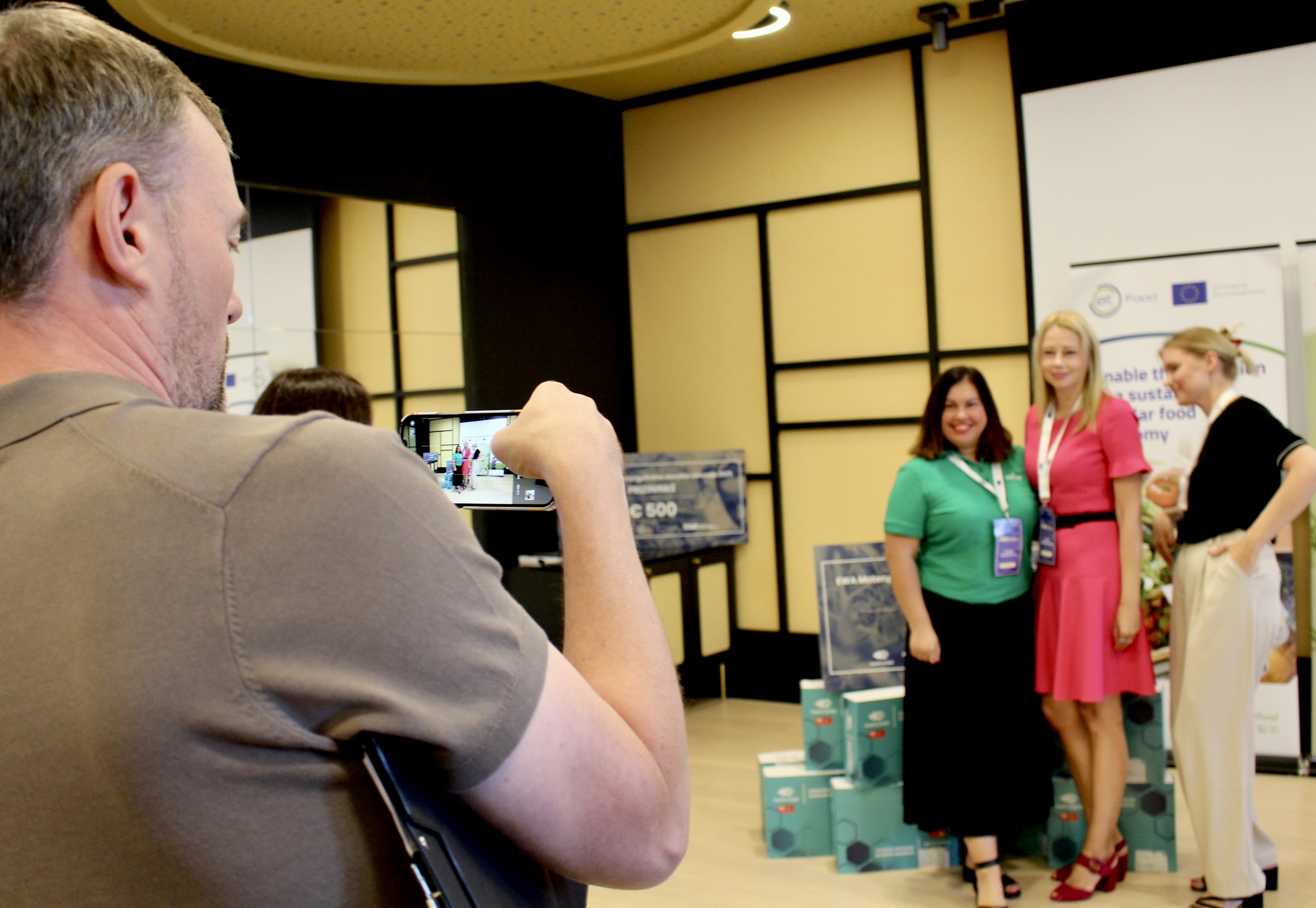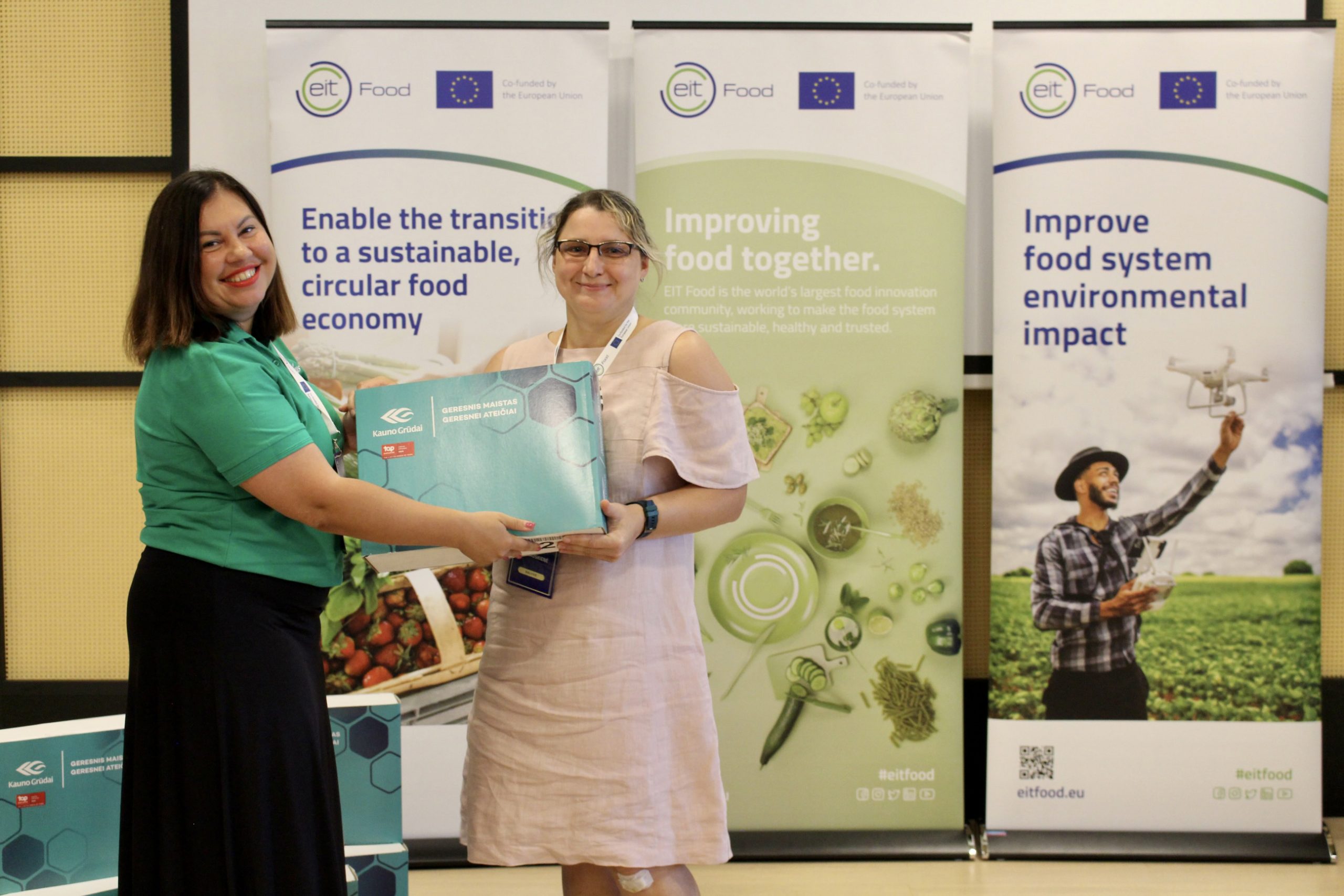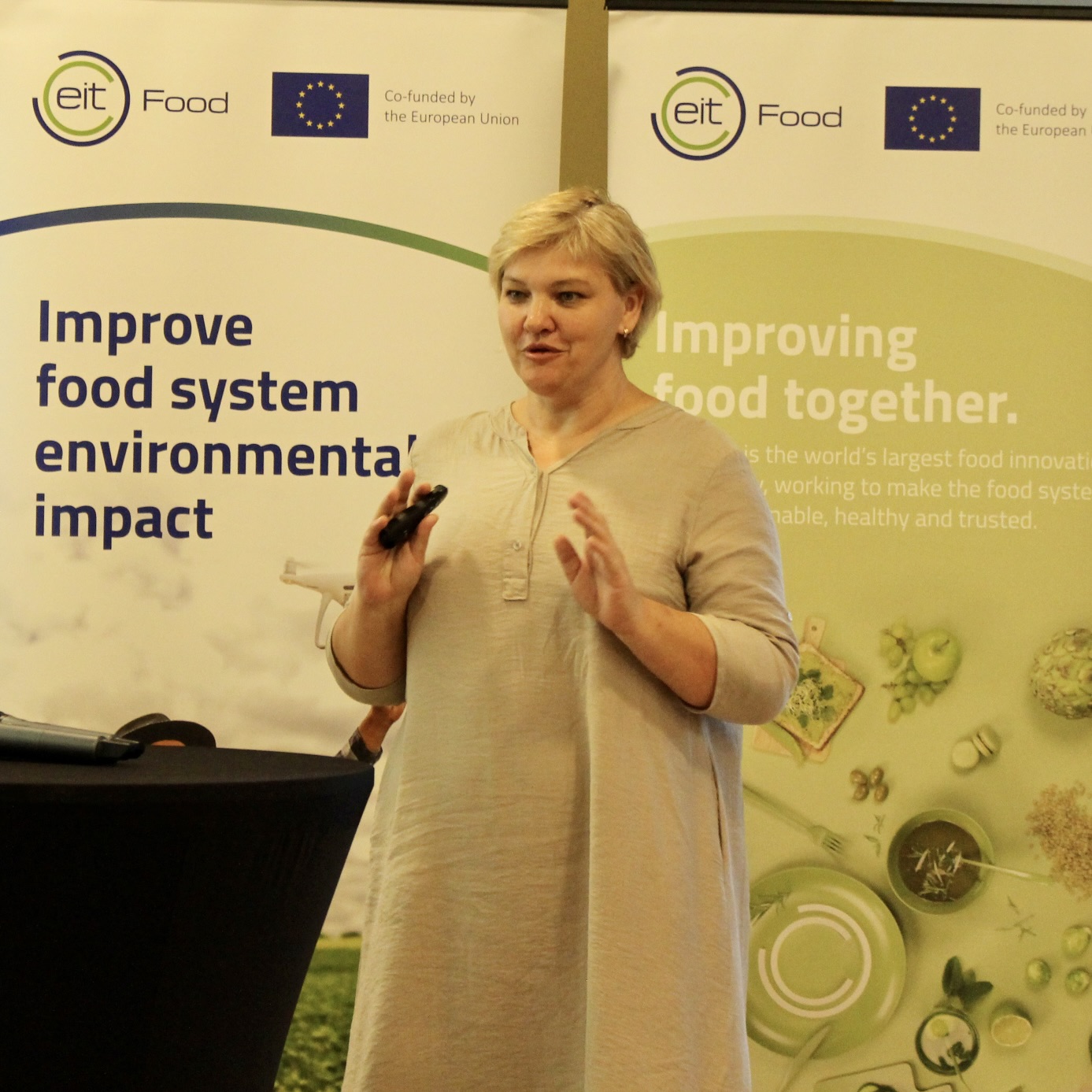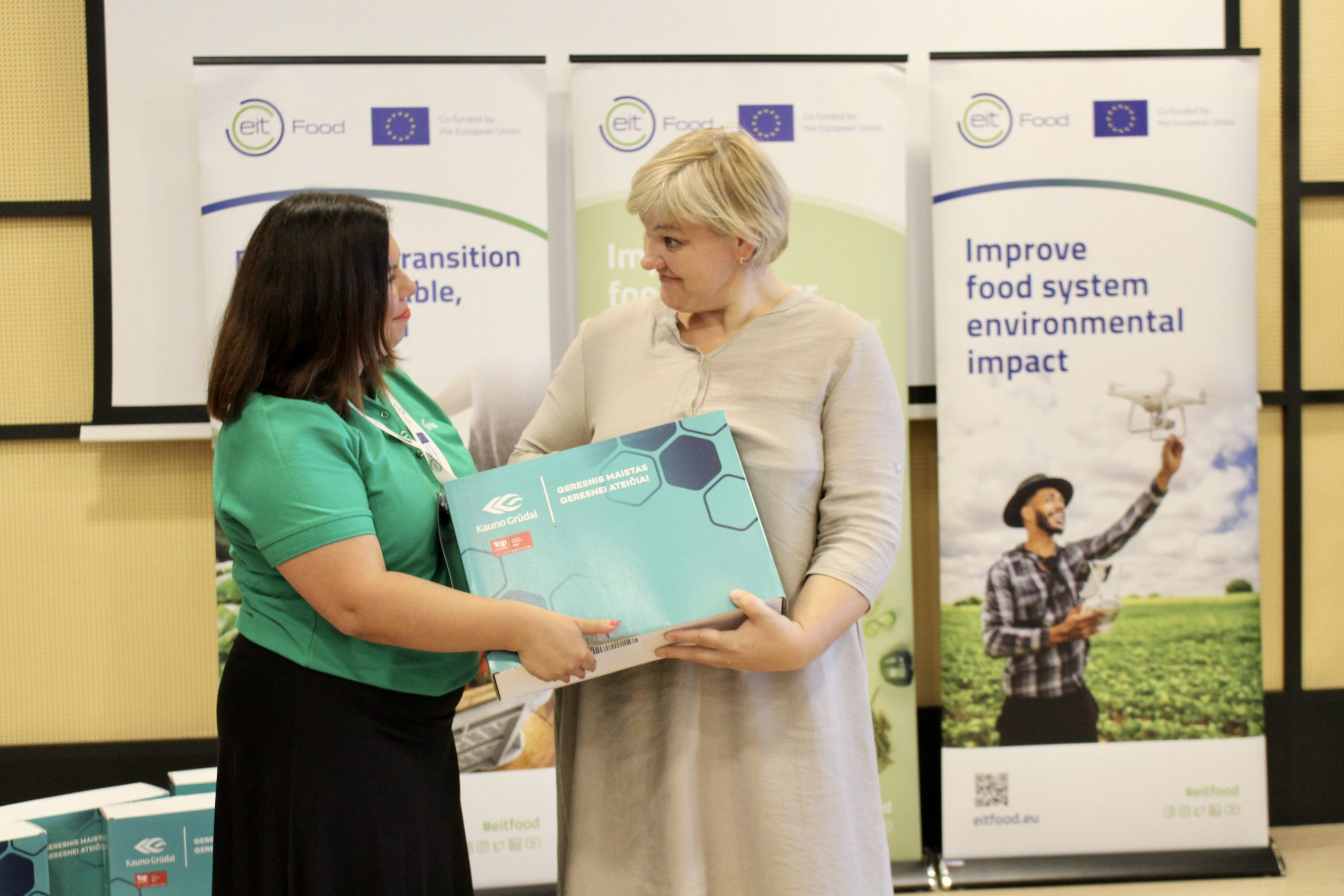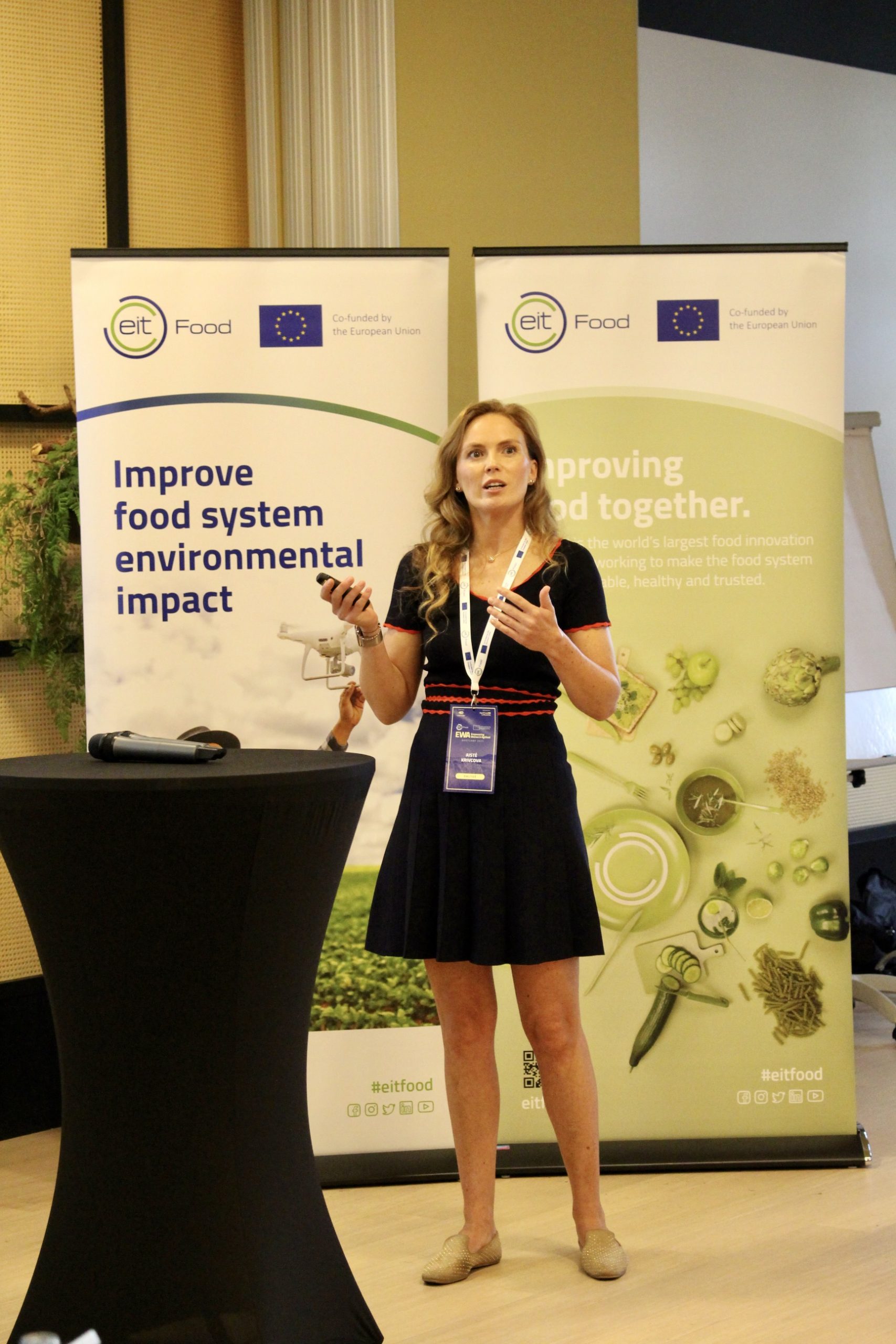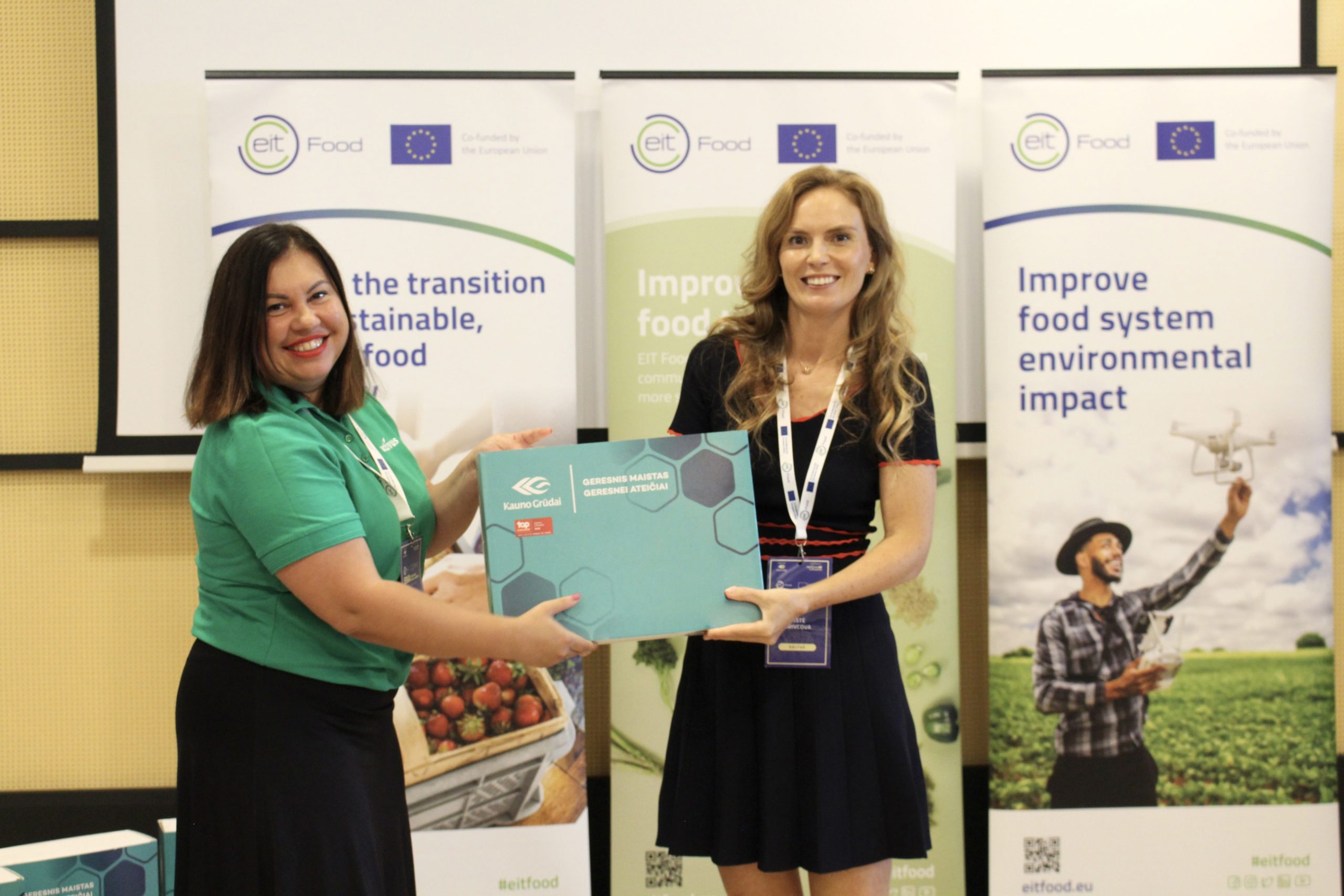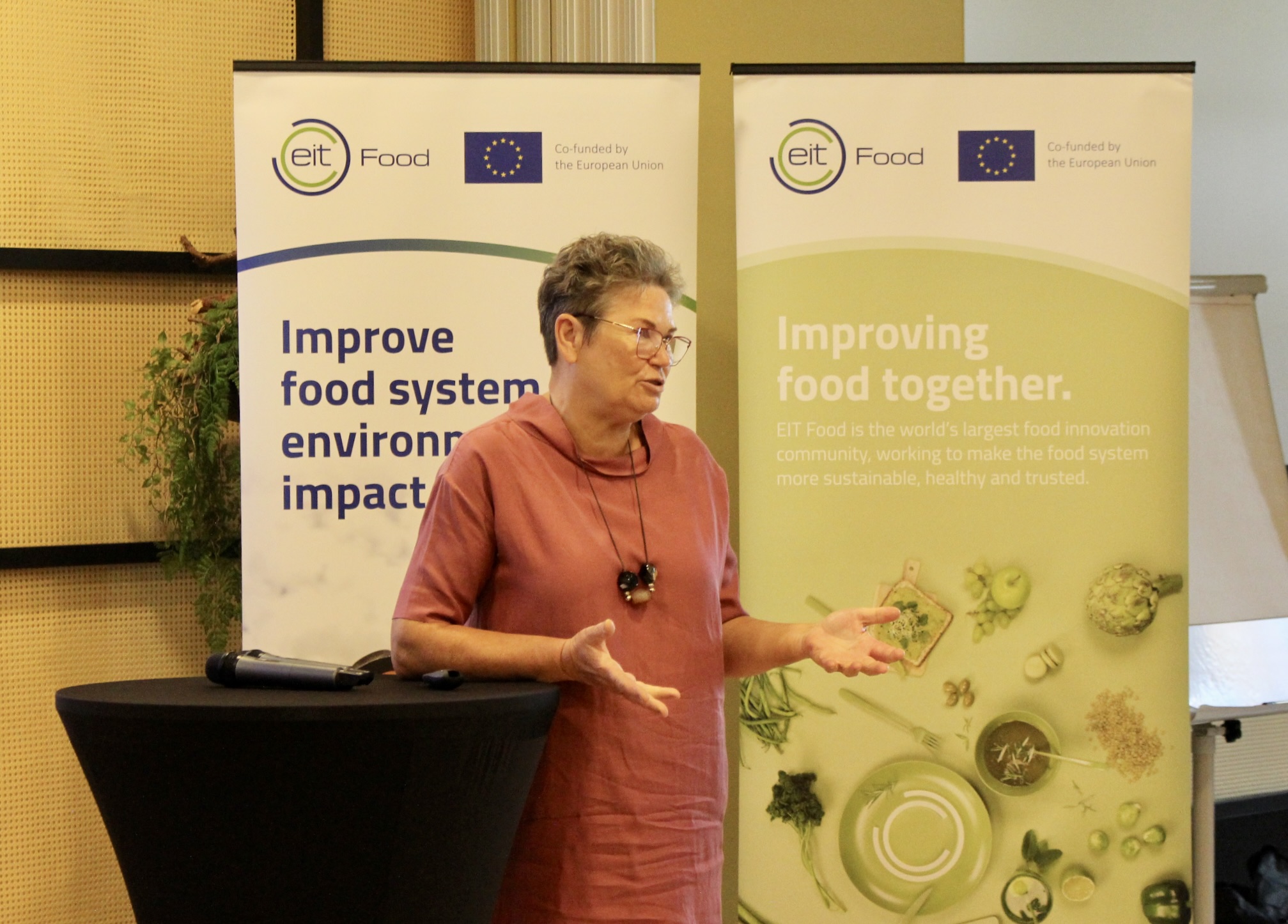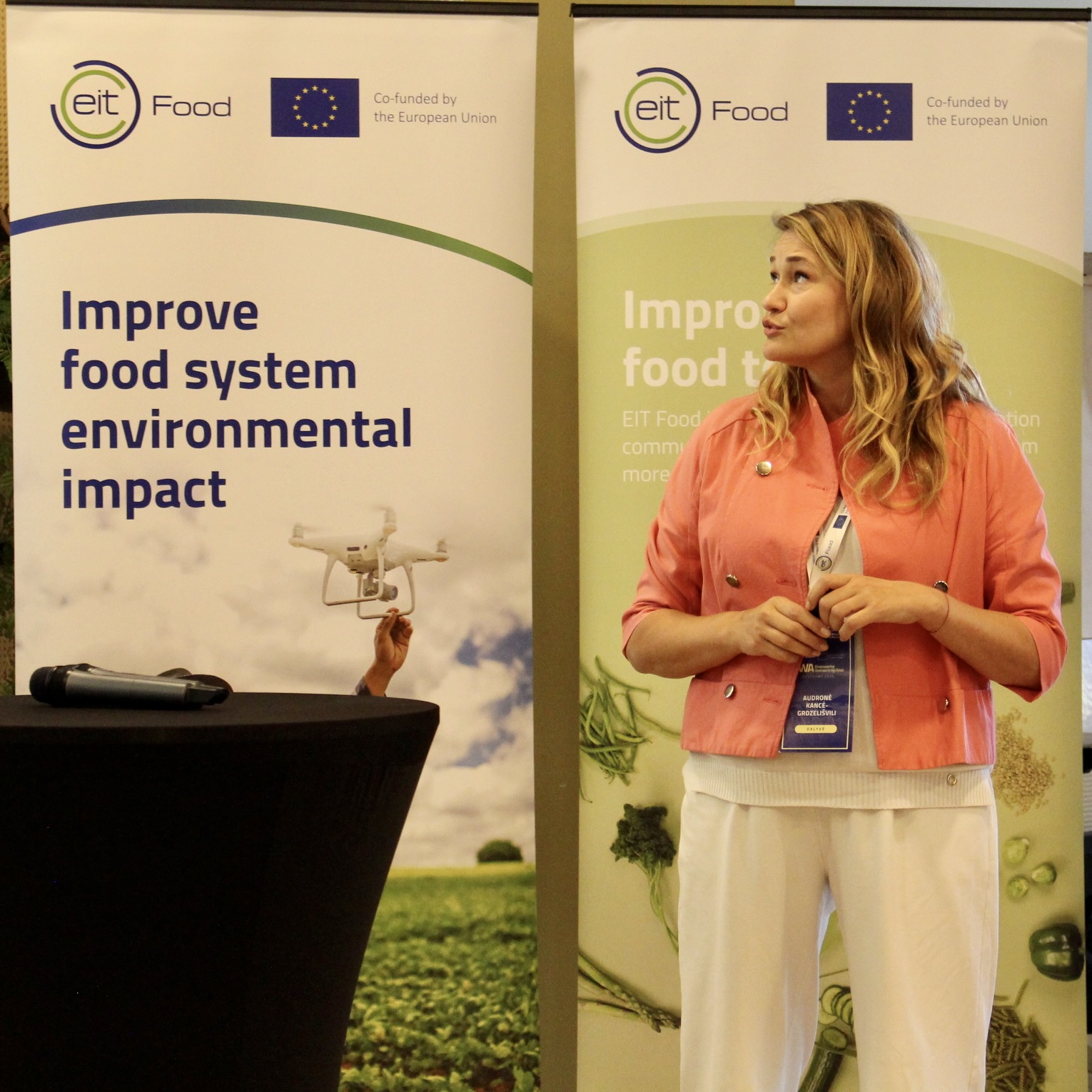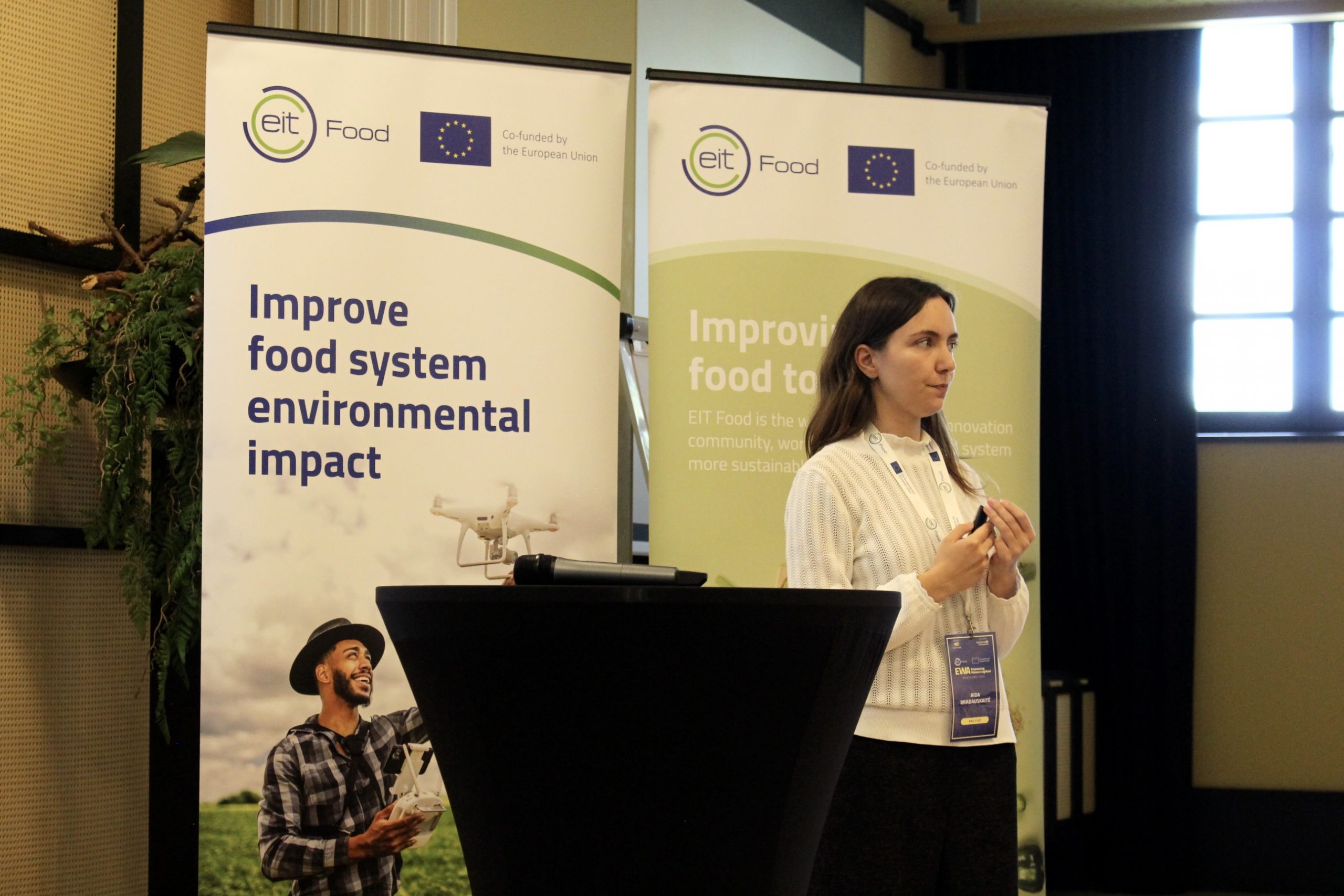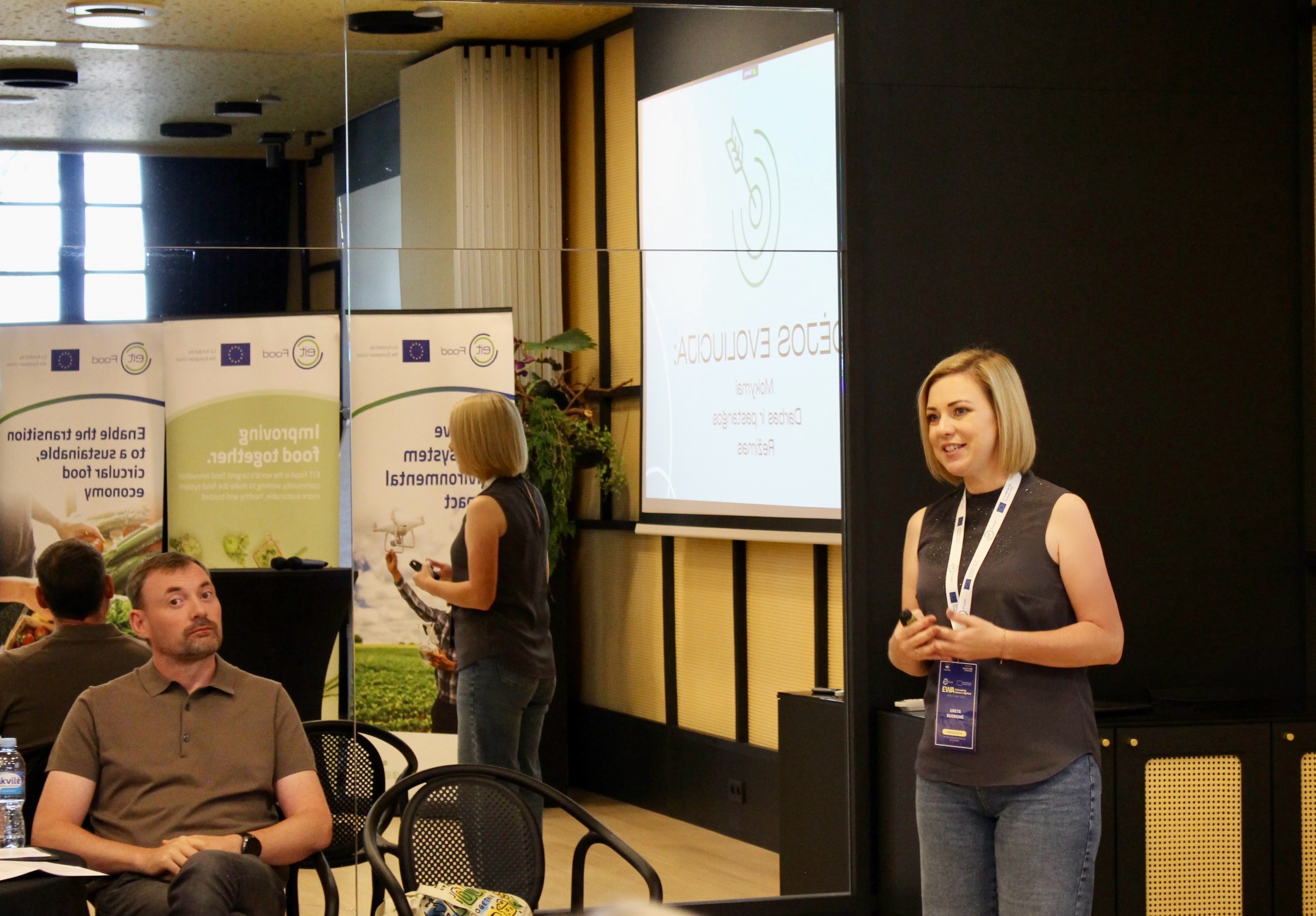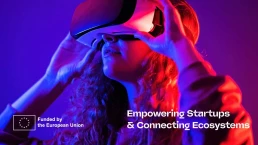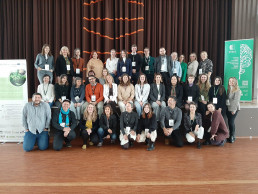Progress of the STELLA project in Lithuania
Overview of the first stage (1–18 months)
Per pirmuosius aštuoniolika mėnesių STELLA projekto įgyvendinimo laikotarpio AgriFood Lithuania DIH (AFL) atliko pagrindinį darbą Lietuvoje – išbandė, kaip pažangios kenkėjų stebėsenos technologijos gali veikti realiomis ūkininkavimo sąlygomis. Šis etapas tapo tvirtu pagrindu tolesniam technologijų diegimui ir duomenų analizės tobulinimui, jungiant mokslinius tyrimus, skaitmeninius įrankius ir kasdienę žemės ūkio praktiką.
Bandomoji veikla buvo sutelkta pietų Lietuvoje, „Valuckų ūkyje“, viename stambiausių bulvių augintojų šalyje, kur kasmet bulvės auginamos apie 500 hektarų plote. AFL čia sukūrė duomenų rinkimo ir analizės infrastruktūrą, sujungiančią lauko stebėseną, meteorologinius duomenis ir vizualinius stebėjimus.
Technology in the soil – implementation of monitoring solutions
In the spring of 2024, AFL installed four automated insect traps to record pest population activity, and integrated weather stations measuring temperature, humidity, wind direction, and precipitation into two of them. In addition, 12 fields (2–19 ha) were monitored using satellite data to create an overall picture of field conditions and combine it with local measurements.
The results of the 2025 growing season revealed a clear pattern: aphid (Aphididae) activity began to manifest itself in the early stages of potato growth, but due to an unusually rainy and cool summer, the spread of potato leafroll virus (PLRV) was limited. This contrast between biological risk and meteorological conditions has become a valuable source for improving early warning methodologies and determining more accurate monitoring periods.
Farmer involvement and mutual benefits
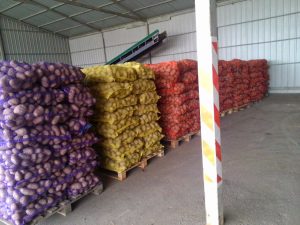
The collaboration with Valuckų Farm became not only a technological project, but also a human one. The AFL team, together with the farm's agronomists, addressed issues related to equipment installation, maintenance, and data transfer, periodically visited the fields, and discussed the initial results.
Such direct contact made it possible to assess how innovations work in the daily rhythm of farming – from pest detection to decisions on when to spray and when to wait. The farm provided valuable insights into the reliability of the equipment and its real impact on the planning of protection measures.
Knowledge dissemination and cooperation
AFL actively shared its experience and achievements at the national and international levels. The project was presented at the „Metų ūkis 2024“ event in Vilkaviškis, which was attended by over 100 farmers from the region, and at the international workshop „Pest Detection Tools feat. Lithuanian Pilot“ (June 2025), which brought together more than 50 experts in agricultural innovation.
Such events have become an important platform for discussions between scientists, farmers, and policymakers on how data analysis and smart technologies can become everyday farming tools.
Challenges and lessons learned
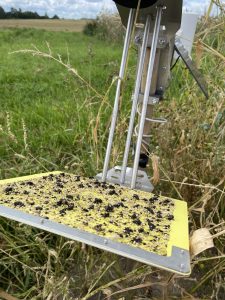
The first phase (M1–M18) showed that even the most advanced technologies depend on nature. The rainy summer of 2025 sometimes disrupted the operation of the equipment, so it was important to develop procedures for synchronizing data between satellite and local sources.
However, these challenges highlighted the main strength of the project: its ability to adapt quickly and learn from field data. The AFL team emphasized that farmers' involvement and openness to innovation are just as important as the technology itself.
Next steps
In the coming period, AFL plans to expand the scope of monitoring and integrate additional data analysis tools that will enable even more accurate pest risk predictions. The link between science, technology, and agricultural practice will continue to be strengthened with the aim of making digital solutions a normal part of farming rather than an exception.
![]()

Agrifood Lithuania at Synergy Days 2025: Strengthening Partnerships, Inspiring Innovation
This year’s Synergy Days 2025 in Rotterdam brought together Europe’s leading innovators, policymakers, clusters, and digital transformation experts in the agri-food and bioeconomy sectors. For the Agrifood Lithuania DIH team, it was an energising two-day journey filled with meaningful conversations, knowledge sharing, and reconnection with partners from six European projects we proudly contribute to: HIGHFIVE, SIXFOLD, 4Growth, ARGONAUT, VALERECO, and Farmtopia.
Across workshops, pitches, demonstrations, and informal exchanges, one message resonated deeply: Europe’s digital and green transformation happens when collaboration turns into action.
HIGHFIVE: Putting Real SME Needs First
Our time with the HIGHFIVE community reminded us why this project stands out—its deeply human approach to digital transformation. HIGHFIVE encourages innovators to start from the problem, not the tool, ensuring that food SMEs gain solutions tailored to real, everyday challenges. Stories of reduced energy use, improved quality monitoring, and meaningful tech adoption showcased how collaboration across clusters and technology providers can accelerate impact. For us, meeting the HIGHFIVE team was both a reunion and a reaffirmation of our shared mission to empower food SMEs with smarter, more sustainable innovations.
SIXFOLD: Turning Pilots into Long-Term Impact
During a session led by coordinator Markus Ojala, SIXFOLD presented its vision for data-driven, resilient, and low-impact food processing. In a joint workshop with HIGHFIVE and SS4AF, one important question took center stage: How do we transform digital trials into everyday practice? Discussions on photonics, data use, and quality monitoring highlighted the power of cross-sectoral collaboration. Our engagement with the SIXFOLD team once again reinforced our commitment to helping food companies adopt innovations that make production more efficient, transparent, and future-ready.
4Growth: Scaling Digital Ecosystems Through Interoperability
The 4Growth partnership demonstrated how shared data spaces, interoperability, and collaborative digital tools can shape the future of agri-food and forestry. From demonstrating our Visualisation Platform to participating in workshops on robotics, AI, and data spaces, we highlighted tangible paths to overcome the “valley of death” between research and real-world adoption. Being part of 4Growth means standing at the forefront of Europe’s data-driven transformation—championing innovation that is scalable, secure, and trusted.
ARGONAUT: Accelerating Europe’s Digital Circular Transition
The ARGONAUT project brought circularity to the forefront with powerful discussions on AI, blockchain, and the emerging role of digital product passports. During sessions with EFRA and bi0space, we tackled two essential questions: How can we build viable business models for AI-powered platforms? And how do we lower barriers to adopting digital product passports in bio-based value chains? These conversations underscored the importance of trust, interoperability, and collaborative governance—key ingredients for scaling digital circular solutions across Europe.
VALERECO: Strengthening Legume-Based Systems Through Living Labs
The VALERECO project highlighted how Living Labs can drive agroecological innovation and build legume-based systems rooted in biodiversity. Through workshops co-organised with initiatives like Hungry Ecocities and BIOFIN-EU, the project showcased the power of hands-on experimentation and cross-sector partnerships. For Agrifood Lithuania, contributing to VALERECO means helping farmers adopt sustainable practices while reinforcing biodiversity and strengthening Europe’s food system resilience.
Farmtopia: Ethical, Open, and Farmer-Centric Digital Farming
At the Farmtopia booth and during workshops, the project team showcased how open-source tools, reusable software components, and real-world pilots are shaping a more inclusive digital farming landscape. Farmtopia’s focus on ethical innovation, human rights considerations, and openly shared technologies resonated strongly with visitors. As partners, we’re committed to advancing digital inclusion so that every farmer—especially smallholders—can benefit from accessible, trustworthy, and future-proof technologies.
Stronger Together: Our Takeaways from Synergy Days 2025
Across all six projects, one theme was clear: innovation thrives where collaboration flourishes. Whether discussing AI for circularity, data spaces for forestry, photonics in food production, or open tools for farmers, the message was the same—Europe’s digital and green transitions will succeed only if we build solutions with stakeholders, not just for them.
For Agrifood Lithuania, Synergy Days 2025 was more than an event. It was a celebration of shared values, aligned missions, and the vibrant ecosystem that continues to push the boundaries of what’s possible in agriculture, food production, and bio-based industries. We returned home inspired, motivated, and proud to be part of these six forward-looking European initiatives—working together toward a smarter, greener, more sustainable future.
EIT Food week | Agrifuture 2025: Skills for Sustainable Food Innovation
EIT Food week | Agrifuture 2025: Skills for Sustainable Food Innovation
Date: 2025 10 20 - 28, final session on 28 October
Location: Kauno Kolegija
Language: Lithuanian
AgriFuture 2025 is a training programme organised by EIT Food and AgriFood Lithuania DIH, designed to equip students with practical knowledge and skills in sustainable food innovation. The training aims to strengthen young people’s understanding of the agrifood sector, its challenges, opportunities, and career prospects - and to inspire them to contribute to the transformation of the food system.
Training objectives:
- Enhance students’ understanding and provide practical knowledge about business creation in the agrifood sector.
- Develop analytical and problem-solving skills to generate innovative solutions.
- Encourage students to pursue careers in the agrifood sector and actively engage in its ecosystem.
Participants will explore protein diversification and novel food innovations, circular bioeconomy solutions, climate-neutral strategies, digital tools for business development.
Throughout the training, students will work in groups to analyze real agrifood challenges and design creative solutions. During the final session on 28 October 2025, they will present their ideas.
This training is a valuable opportunity to expand knowledge, strengthen practical skills, and prepare for a successful career in the sustainable agrifood sector.
The training is organised in collaboration with EIT Food, the world’s largest food innovation community, and Kauno Kolegija. We sincerely thank our partners for their collaboration and support!
PRECIOUS
PRECIOUS is a Horizon Europe project tackling food loss and waste (FLW) with a data-driven, AI-enabled approach.
The project integrates big data and AI to measure FLW, designs sector-specific prevention strategies, and assesses environmental and economic impacts—while accounting for rebound effects that can offset savings. Its Tool Suite includes an AI predictor, impact simulator, actions tracker, integrated assessment models, a public-perception tool, a Knowledge Hub, and decision-support for the food–energy–environment–economy nexus. Two use cases (fresh produce and meat) and EU-wide stakeholder engagement aim at scalable, policy-aligned deployment.
Comprehensive FLW prevention and decision toolkit; replication strategies and sustainability roadmaps; two communities of practice; LCA studies, training materials, and ~10 publications to support EU targets.
Partneriai:
- University of Deusto;
- IIASA;
- CluBE;
- YAGHMA B.V.;
- E3 Modelling AE;
- CSCP;
- Greenovate! Europe;
- Universitat Jaume I;
- Eco Intelligent Growth SL;
- 2.-0 LCA;
- Technische Universität Berlin;
- RINA;
- ASINCAR;
- Vegalsa;
- EIT Food;
- UNIMOS Alliance;
- AgriFood Lithuania;
- Innomine.

ARGONAUT
ARGONAUT is an EU project building an AI-powered tool to calculate and track the climate and environmental impact of bio-based products across their whole value chain.
The project develops “JASON,” a decision-support system that combines AI with blockchain/Digital Product Passports to deliver transparent footprints and practical alternatives for producers. Validation happens in six real value chains in Italy and Lithuania (biopolymers, biomethane, nutraceuticals, wheat/flour, grass biorefinery, vegetables/byproducts).
Open, user-friendly impact assessment and decision tool (JASON) + Digital Product Passports; pilots in 6 bio-based chains; goal is to empower especially SMEs with reliable comparisons and greener choices.
Partners:
- CERTH-iBO (Coordinator, GR),
- ATB Bremen (DE),
- University of Ljubljana (SI),
- VCG.AI (DE),
- VizLore Labs Foundation (RS),
- RAINNO (GR),
- AgriFood Lithuania DIH (LT),
- Lombardy Green Chemistry Association—LGCA (IT),
- Ideas Forward (GR).

ENACT
The ENACT project aims to drive the transformation of the European food system toward greater sustainability, fostering digital transition and entrepreneurship within the agri-food social economy across Europe. To achieve this, transnational cooperation and enhancing the capacities of various stakeholders are crucial.
The project begins its journey by conducting a country-by-country needs assessment and gaining a transnational perspective on the specific requirements for the digital transition of the agri-food social economy. This analysis will help build a capacity-building environment that promotes innovation, collaboration, and resilience in the sector.
Moving forward, ENACT will deploy a transnational capacity-building program that includes training 30 individuals to empower social economy-enabling organizations, along with virtual and local training sessions for a minimum of 200 participants to sustain this multiplier effect. The project envisions the establishment of innovative ecosystem networks that transcend borders, fostering collective resilience and mutual support among approximately 270 social economy actors.
Encouraging the co-creation of digital innovative solutions, the project will organize innovative events such as a transnational Hackathon and Matchathon while disbursing €220,000 in direct financial support.
The project consortium consists of partners from across Europe—organizations from Austria, Lithuania, Portugal, and Spain. Additionally, stakeholder engagement strategies have been carefully designed to support collaborative project networks and amplify the project's impact within the agri-food social economy.
Project partners:
- CAMBRA OFICIAL DE COMERC, INDUSTRIA I NAVEGACIO DE BARCELONA (BCC).
- B. LINK BARCELONA STRATEGIC PROJECTS SL (B. LINK).
- POUR LA SOLIDARITE ASBL (PLS).
- MAKE IT BETTER ASSOCIACAO PARA A INOVACAO E ECONOMIA SOCIAL ASSOCIACAO DE DIREITO PRIVADO (MIB).
- AgriFood Lithuania DIH (AFL).
- AUSTRIA WIRTSCHAFTSSERVICE GMBH (AWS).

STELLA
The STELLA project – smart tech for pest monitoring and plant health
Programme funding: Horizon Europe (HORIZON-CL6-2023-GOVERNANCE-01)
Project duration: 2024–2028
Coordinator: Agricultural University of Athens (AUA), Greece
Partners: 14 organizations from Greece, Italy, Austria, Belgium, France, Lithuania, and New Zealand
Lithuanian partner: AgriFood Lithuania DIH
Towards sustainable farming
Climate change and changes in global supply chains are increasing the spread of pests and plant diseases, posing a risk to crops and food security. The STELLA project aims to address these challenges by developing an advanced real-time pest monitoring and management system based on artificial intelligence and digital technologies.
The goal of the project is to create an integrated ecosystem of solutions that will combine satellite data, short-range sensors, smart traps, and data analysis algorithms. This system will help farmers, agronomists, and policymakers identify threats in a timely manner, predict pest spread, and make more effective, environmentally friendly decisions.
Kaip veiks STELLA sistema?
STELLA sistema bus sudaryta iš trijų tarpusavyje susietų komponentų:
- Ankstyvojo įspėjimo sistema – prognozuos kenkėjų atsiradimo rizikas, pasitelkdama IoT jutiklius ir pažangius modelius.
- Kenkėjų aptikimo sistema – leis naudoti palydovinius vaizdus, dronus ir mobiliąją programėlę tiksliam kenkėjų nustatymui laukuose.
- Reagavimo sistema – teiks rekomendacijas, kaip sumažinti žalą ir taikyti tvarias apsaugos priemones.
Šios technologijos bus išbandytos šešiuose bandomuosiuose ūkiuose (Use Case Pilots) įvairiose šalyse, atspindinčiose skirtingas klimato ir žemės ūkio sąlygas.
AgriFood Lithuania DIH vaidmuo
AgriFood Lithuania DIH dalyvauja STELLA projekte kaip partneris, atsakingas už bandomųjų veiklų organizavimą Lietuvoje ir ryšį su žemės ūkio bendruomene.
Numatyta, kad AFL veiklos apims:
- Duomenų rinkimo ir stebėsenos veiklų koordinavimą, įrengiant technologinius sprendimus laukuose ir užtikrinant sklandų duomenų perdavimą į projekto sistemą.
- Dirbtinio intelekto įrankių ir išmaniųjų gaudyklių testavimą, siekiant įvertinti jų pritaikomumą Lietuvos žemės ūkio sąlygomis.
- Ūkininkų ir agronomų įtraukimą į projekto ekosistemą, skatindama jų aktyvų dalyvavimą ir duomenų teikimą per „crowdsourcing“ principu veikiančią mobiliąją programėlę.
- Politikos ir reguliavimo analizę, susijusią su skaitmeninių technologijų diegimu augalų sveikatos valdymo srityje.
- Informacijos sklaidą ir gebėjimų stiprinimą, organizuojant renginius, seminarus ir komunikacines veiklas, kurios padės geriau suprasti naujų technologijų naudą žemės ūkiui.
Tokiu būdu AFL prisideda prie Lietuvos žemės ūkio sektoriaus skaitmeninimo ir tvaresnio ūkininkavimo plėtros, sudarydama sąlygas vietos ūkiams tapti inovacijų dalimi.
Expected impact
- Improved plant disease and pest monitoring process based on accurate data.
- Reduced pesticide use and environmental pollution.
- Strengthened technological preparedness and data-driven decision-making capabilities of farmers.
- Policy guidelines developed to accelerate the adoption of digital innovations in agriculture.
Projekto partneriai
- Agricultural University of Athens (AUA), Graikija – koordinatorius
- Università Cattolica del Sacro Cuore (UCSC), Italija
- Institute for Agricultural and Fisheries Research (ILVO), Belgija
- University of Natural Resources and Life Sciences (BOKU), Austrija
- Green & Digital (Graikija)
- Foodscale Hub (Graikija)
- ACTA – Association de Coordination Technique Agricole (Prancūzija)
- HORTA SRL (Italija)
- PESSL Instruments GmbH (Austrija)
- Green Supply Chain DIH (Graikija)
- AgriFood Lithuania DIH (Lietuva)
- EDENCORE Technologies (Graikija)
- Institut Français de la Vigne et du Vin (Prancūzija)
- Lincoln Agritech Limited (Naujoji Zelandija)
You can find out more about the project here

INNOVATE-EU
INNOVATE-EU: Empowering European Start-ups Through Interconnected and Inclusive Innovation Ecosystems is a Horizon Europe project designed to strengthen regional innovation ecosystems across Europe and empower deep-tech start-ups and scale-ups. Running from January 2025 to December 2026, this 24-month initiative unites eight partners from five EU countries: Germany, Spain, Lithuania, Latvia, and Romania.
Despite Europe's strong innovation leadership, disparities between regions continue to hinder inclusive growth. While innovation leader regions like Baden-Württemberg in Germany thrive, emerging regions in Latvia and Northeast Romania face significant challenges in accessing capital and adequate support for startups. INNOVATE-EU addresses this fragmentation by fostering cooperation between regions with different levels of innovation maturity, creating a unified European innovation landscape.
Why Regional Innovation Integration Matters
Innovation ecosystems across Europe remain fragmented, limiting knowledge exchange and hindering the potential for disruptive innovations to emerge from less-developed regions. This disparity restricts access to resources, networks, and funding opportunities, particularly affecting women and minority entrepreneurs. INNOVATE-EU recognizes that sustainable innovation requires bridging these gaps and creating pathways for inclusive growth across all European regions.
The project's mission is threefold:
- Diagnose and Bridge Gaps: Conduct comprehensive mapping of regional innovation ecosystems and identify specific needs of start-ups and support organizations through stakeholder co-creation processes.
- Build a Connected Community: Establish an interregional innovation support network, linking local ecosystems to European-level actors and fostering sustainable cross-border collaboration.
- Empower Start-ups: Design and implement targeted support actions, including training, mentoring, and matchmaking opportunities tailored to the needs of deep-tech innovators across Health, GreenTech, AgriFood, and ICT sectors.
Key Activities
INNOVATE-EU achieves its objectives through comprehensive regional ecosystem analysis and stakeholder engagement, developing a three-stream startup support programme covering capacity building, acceleration support, and access to funding. The project will generate policy recommendations and strategic insights based on real-world feedback from pilot actions, while organizing cross-regional knowledge exchange events and a final matchmaking showcase for investor-ready start-ups.
The project adopts a systematic three-pillar approach: setting the stage through thorough ecosystem analysis, building interconnected and inclusive innovation ecosystems through sustainable community formation, and strengthening European start-ups through direct support combining training on financial modeling, business model innovation, pitch preparation, and international market access strategies.
Expected Impact
INNOVATE-EU will achieve stronger, more resilient regional innovation ecosystems with enhanced cross-border collaboration and knowledge sharing. The project aims to improve access to resources and markets for start-ups and scale-ups while providing actionable policy recommendations for EU innovation strategies. By co-creating action plans with local stakeholders, INNOVATE-EU will deliver tangible improvements in ecosystem collaboration, inclusiveness, and startup support.
INNOVATE-EU represents a new wave of European cooperation that enables innovation to thrive across borders and sectors, ensuring that no region is left behind in the journey toward a sustainable, digital, and inclusive future.
Partners:
- Steinbeis 2i GmbH
- Asociatia Clusterelor din Romania
- AgriFood Lithuania DIH
- Asociacion Investigacion, Desarrollo e Innovacion en Aragon
- Fundacion Zaragoza Ciudad de Conocimiento
- Gruenhof GmbH Latvijas Partikas Uznemumu Federacija
- Clusterul Regional Inovativ de Imagistica Moleculara si Structurala Nord-Est
Project website: https://innovateeu.eu/
The BioSolFarm project was presented in Kaunas to a broader audience
On 14 May 2025, the BioSolFarm project (Renewable Energy Solutions for Farms in the South Baltic Region, Interreg South Baltic Programme) was presented in Kaunas to a broader audience, contributing to a wider discussion on innovation in the agri-food sector.
The event brought together local and international participants — including project partners, SME farmers, local residents, policymakers, public institutions, educational organizations, agricultural agencies, rural development associations, the Institute of Economic and Rural Development, and agricultural chambers. This diverse composition enabled cross-fertilization of knowledge and perspectives between BioSolFarm partners and cooperatives of farmers, residents, and public entities.
During the session, the project team introduced the project’s objectives, activities, and early insights. This was followed by discussions on how renewable energy, digital tools, and cooperative approaches can strengthen farm resilience, energy efficiency, and sustainability. The exchange supported peer learning and stakeholder dialogue, linking practical farm needs with emerging solutions from the South Baltic region.
Overall, the Kaunas session served as an important learning activity and dissemination opportunity within BioSolFarm — fostering networking, cross-border cooperation, and collaboration between actors working toward greener and smarter agriculture. The event marks another step toward supporting a more sustainable and resilient agricultural sector in the South Baltic region.
